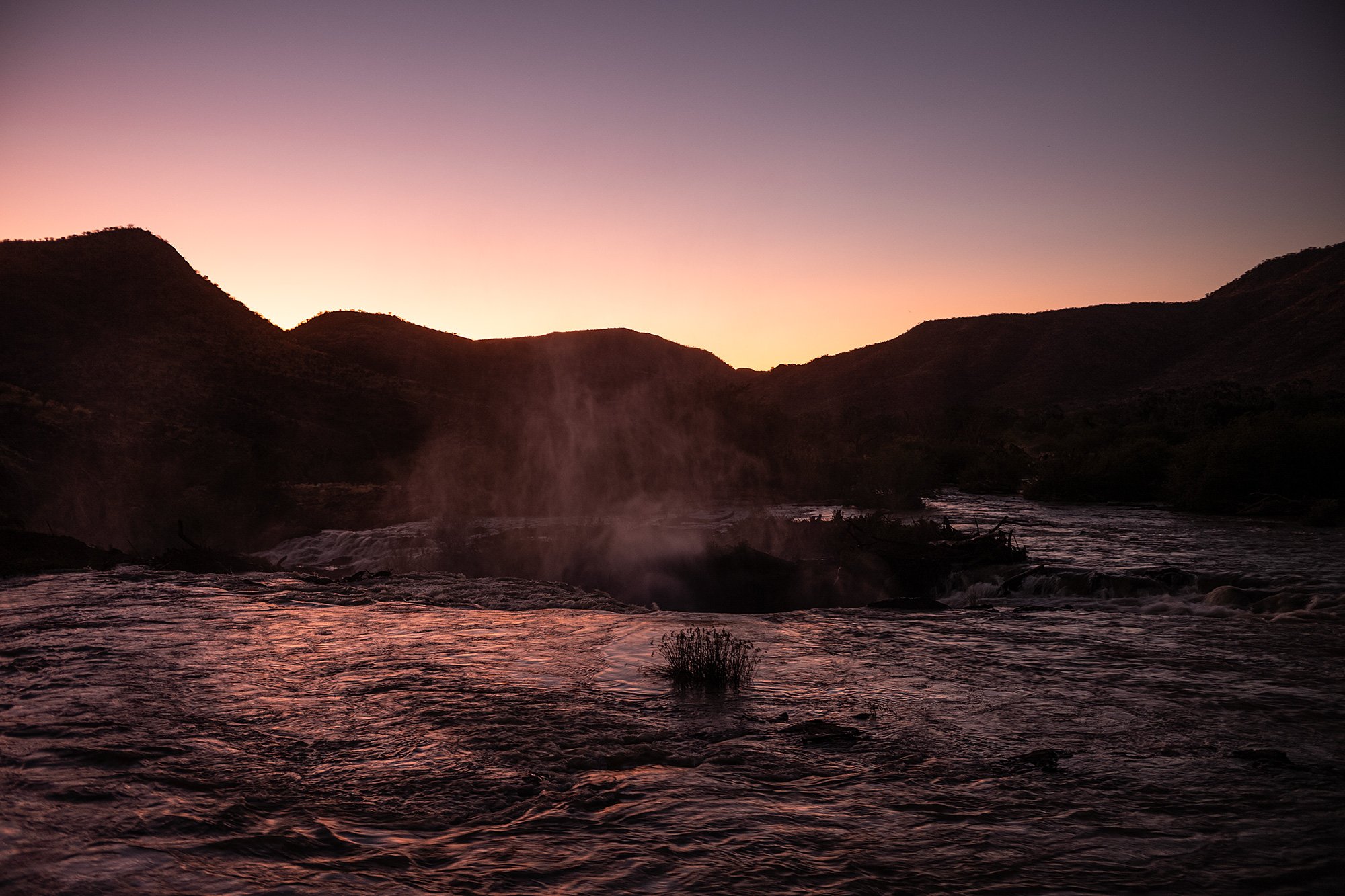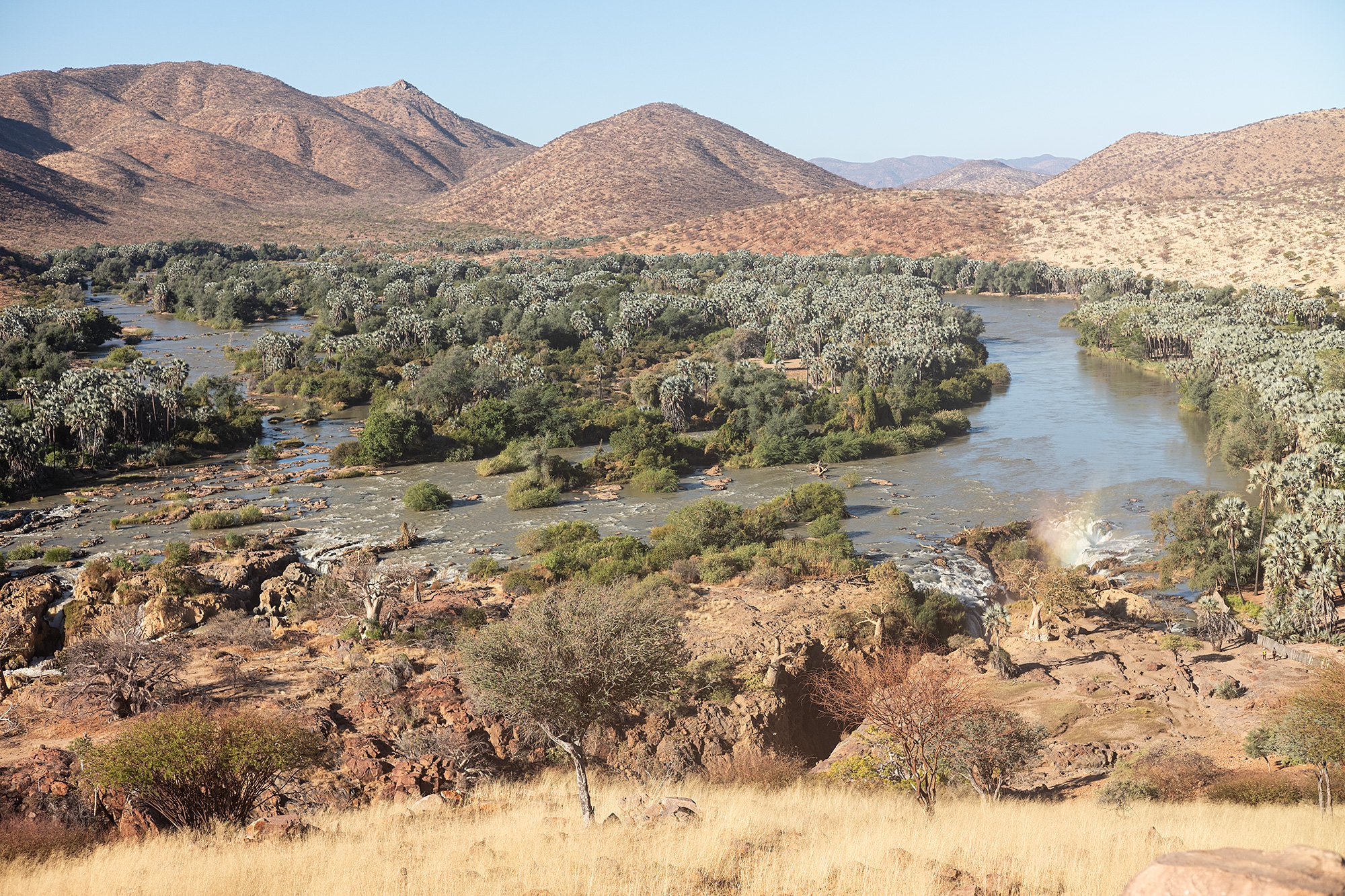
Namibia chapter twenty
The road to Epupa Falls.
I sleep off and on through the night. I keep waking myself to gaze up at the stars and I am up before the dawn. I watch as the skies lighten, the stars fade. A desert frog croaks just before the dawn.
At breakfast I meet Riley, a bush pilot from Nevada and Montana. She says it’s a great place for a pilot to gain experience and accrue hours. There’s always opportunity. She had stayed over the night before. Her next scheduled flight is at 0830 and I plan to follow her out of the camp. I have about eight hours of driving ahead of me.
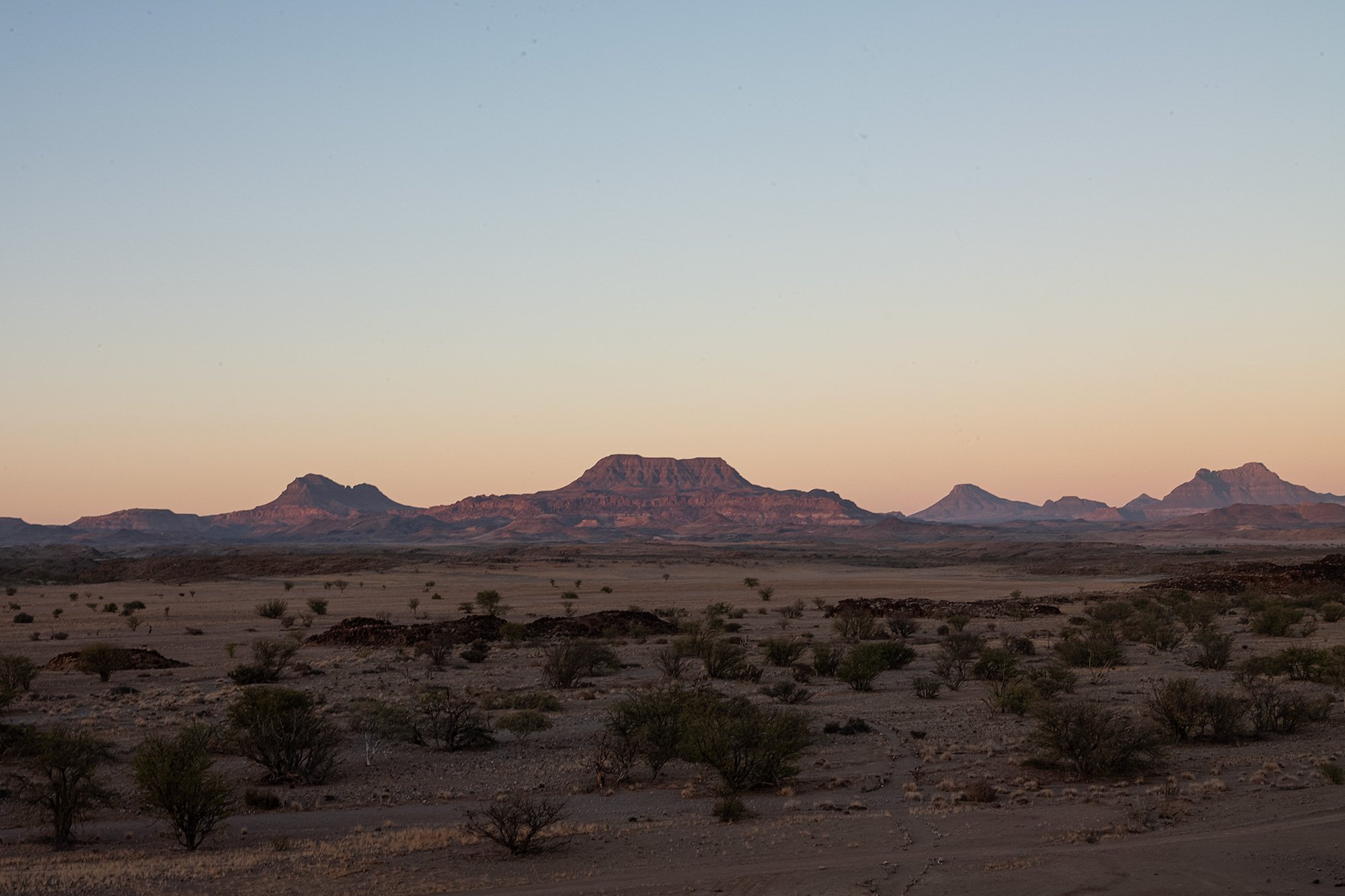
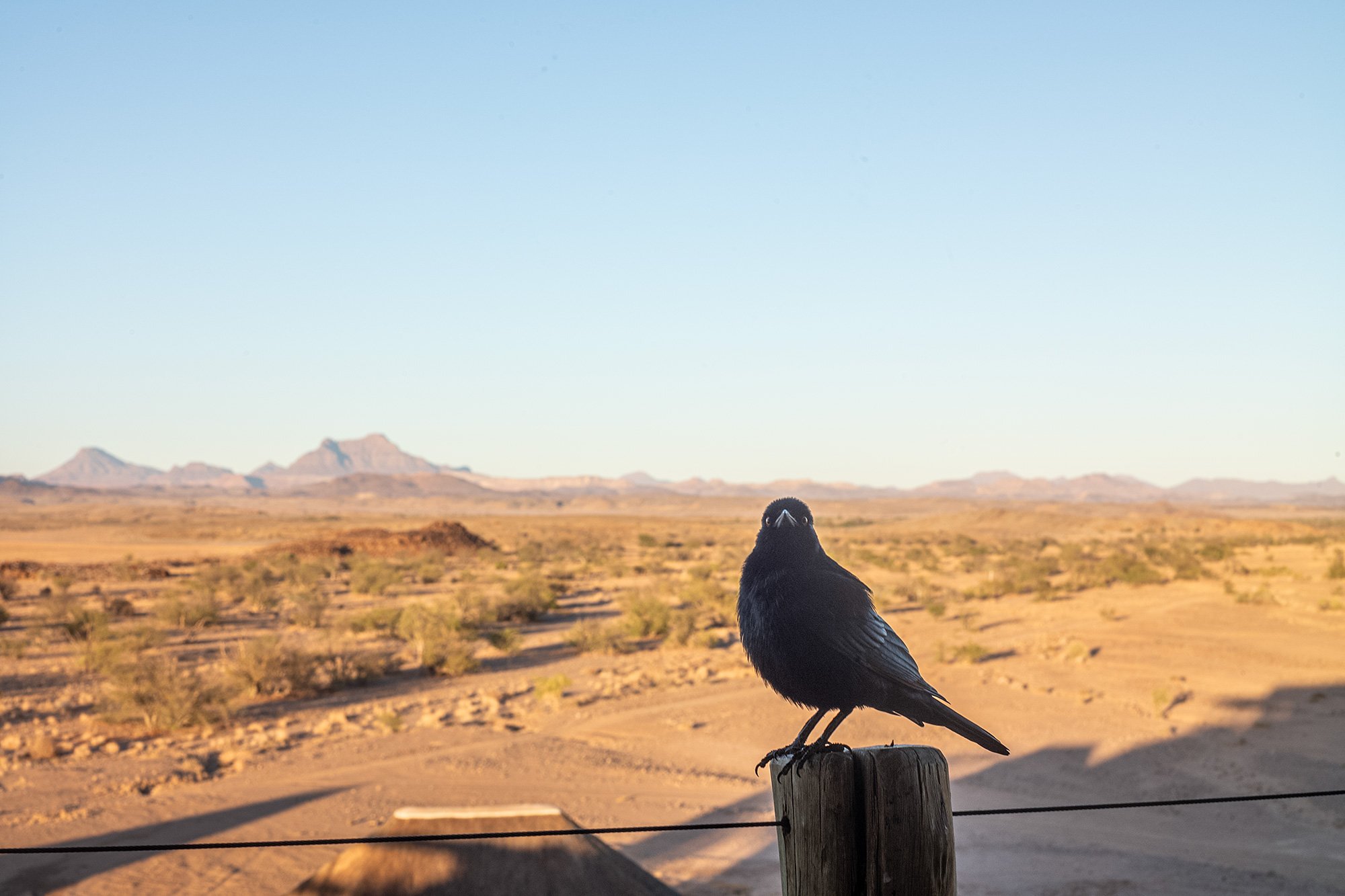
I collect my things and drop my key off at reception. They tell me to wait a minute while someone runs to find Nathan, the chef. He’s their bass. Once everyone is collected they sing their farewell. I thank them when they finish and walk down the hill to my car. I drive along dirt roads to the main road and point Olivia north. The morning smells of camphor.
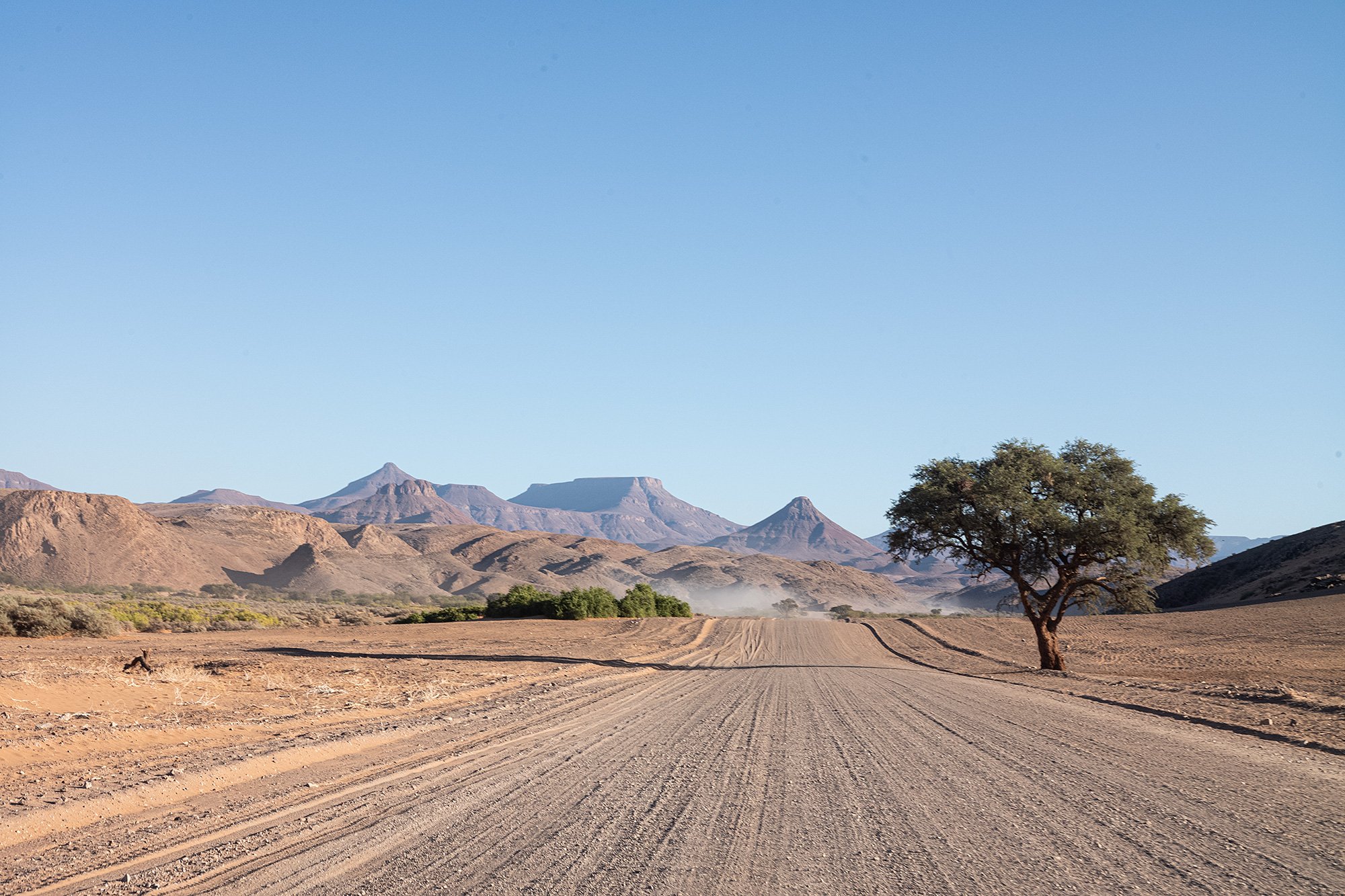
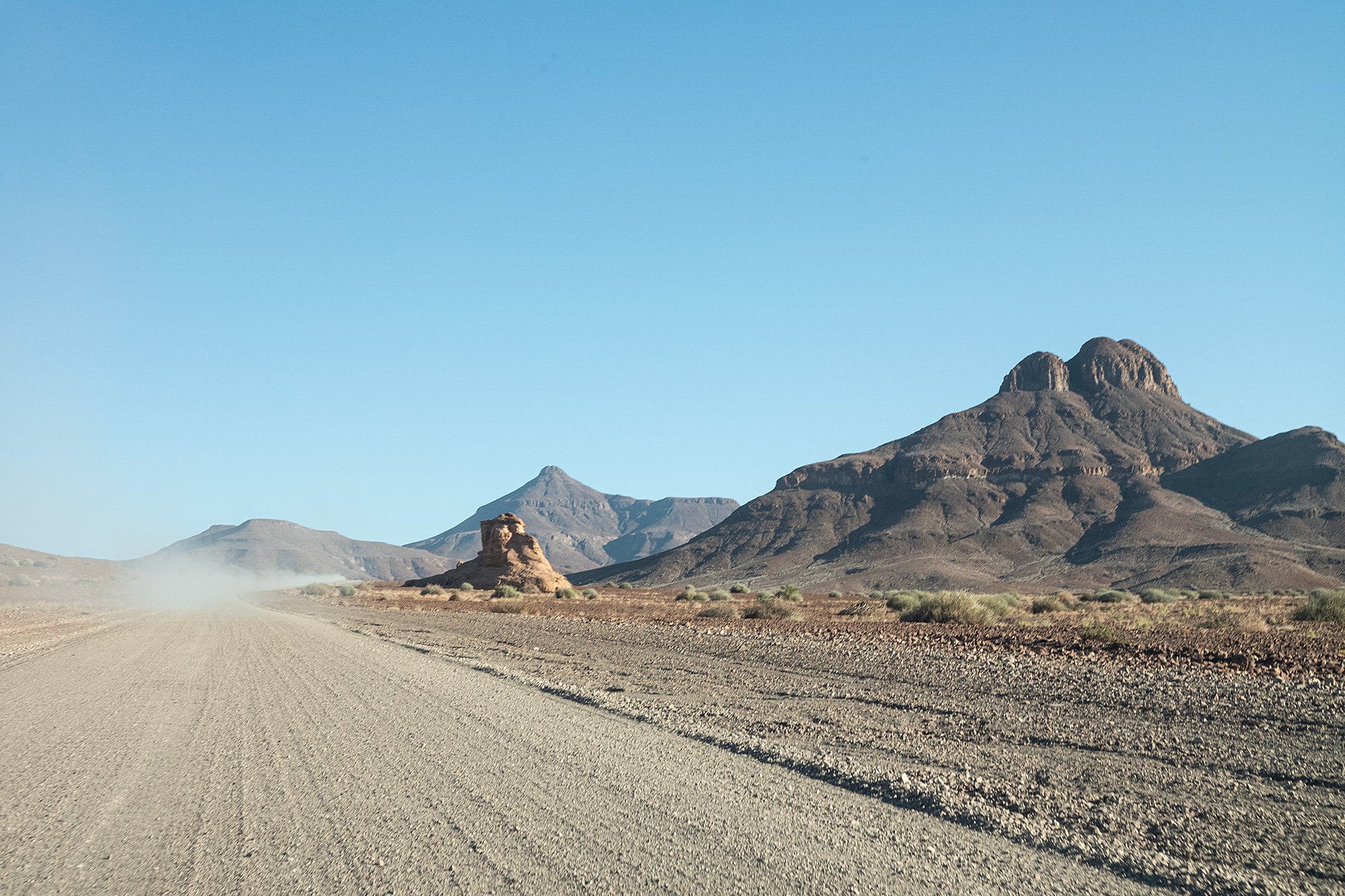
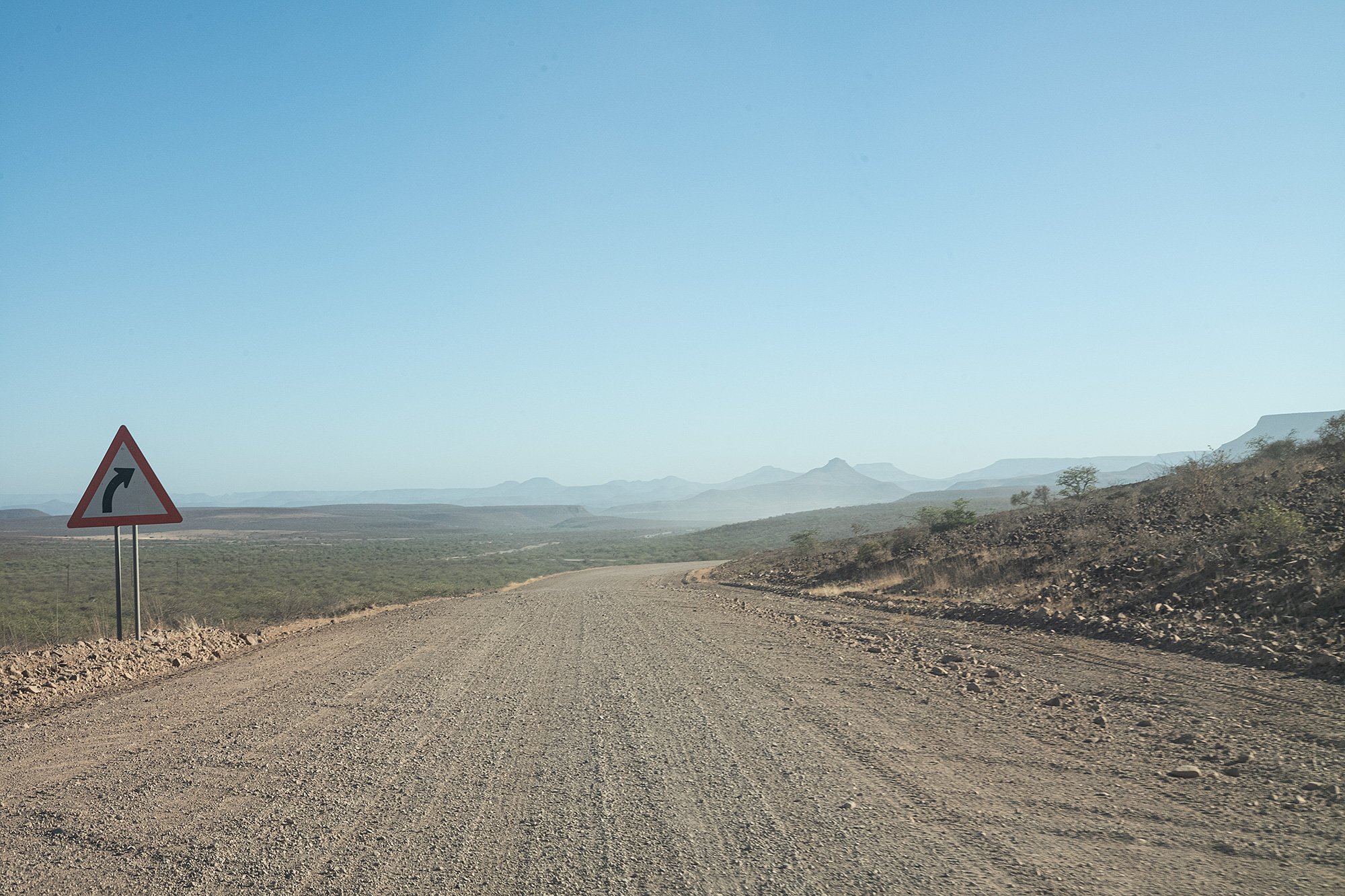
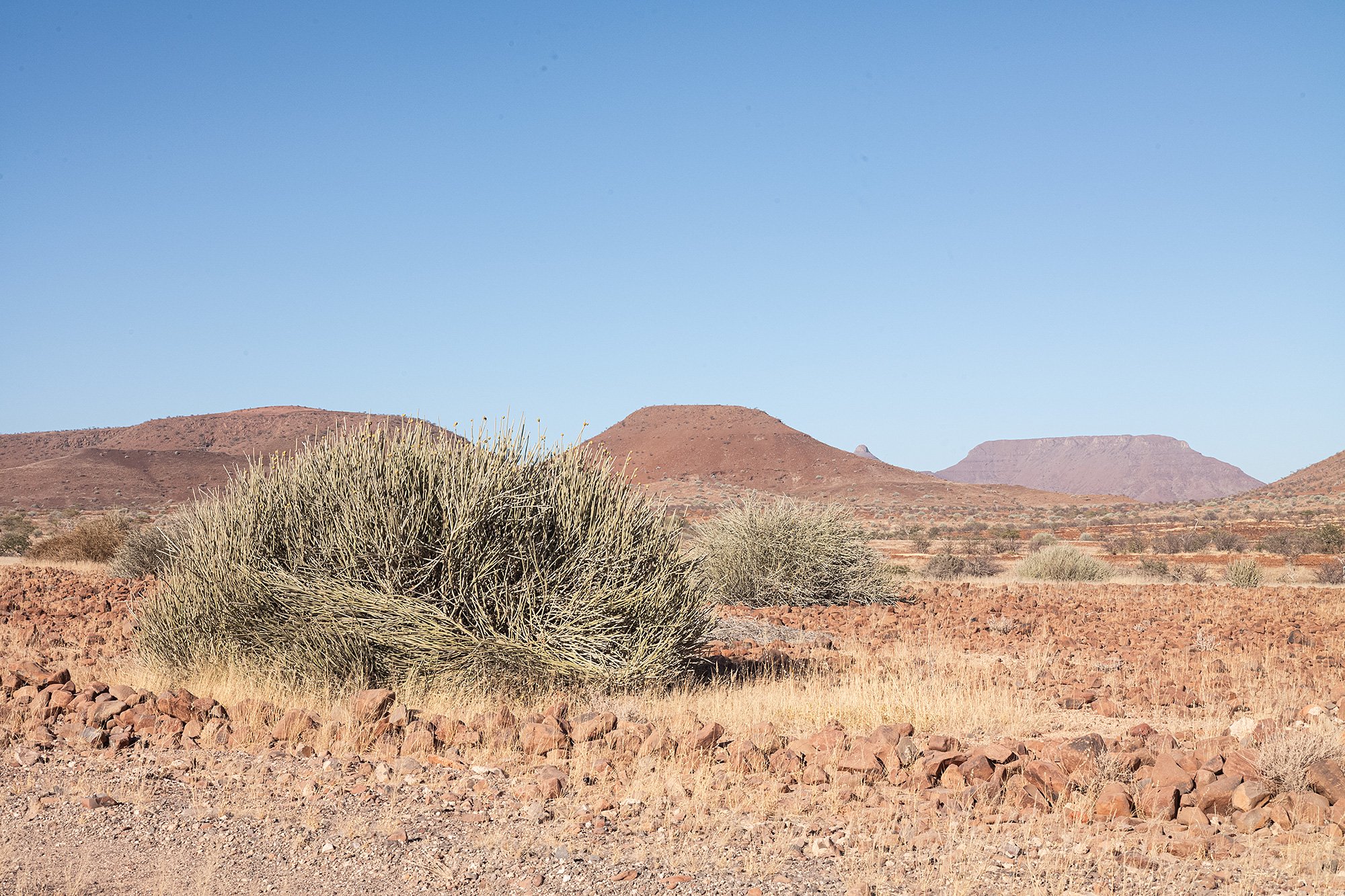
Now and again I see the plume of dust signalling another vehicle, and I do my best to ovetake it as soon as I can to minimize the amount of time I spend in a cloud.
Just outside Palmwag I pass a stock control gate, pur in place in an attempt to keep disesases from spreading to livestock. Just past, I stop at the only gas station for kilometers. Januarie emerges from a small corrugated iron shed to pump the gas. He records the amount on a sheet of paper cliped to a clipboard. I ask him how he got his name and he tells me he was born in January. He thanks me for stopping by and tells me he’ll be waiting for me next time.
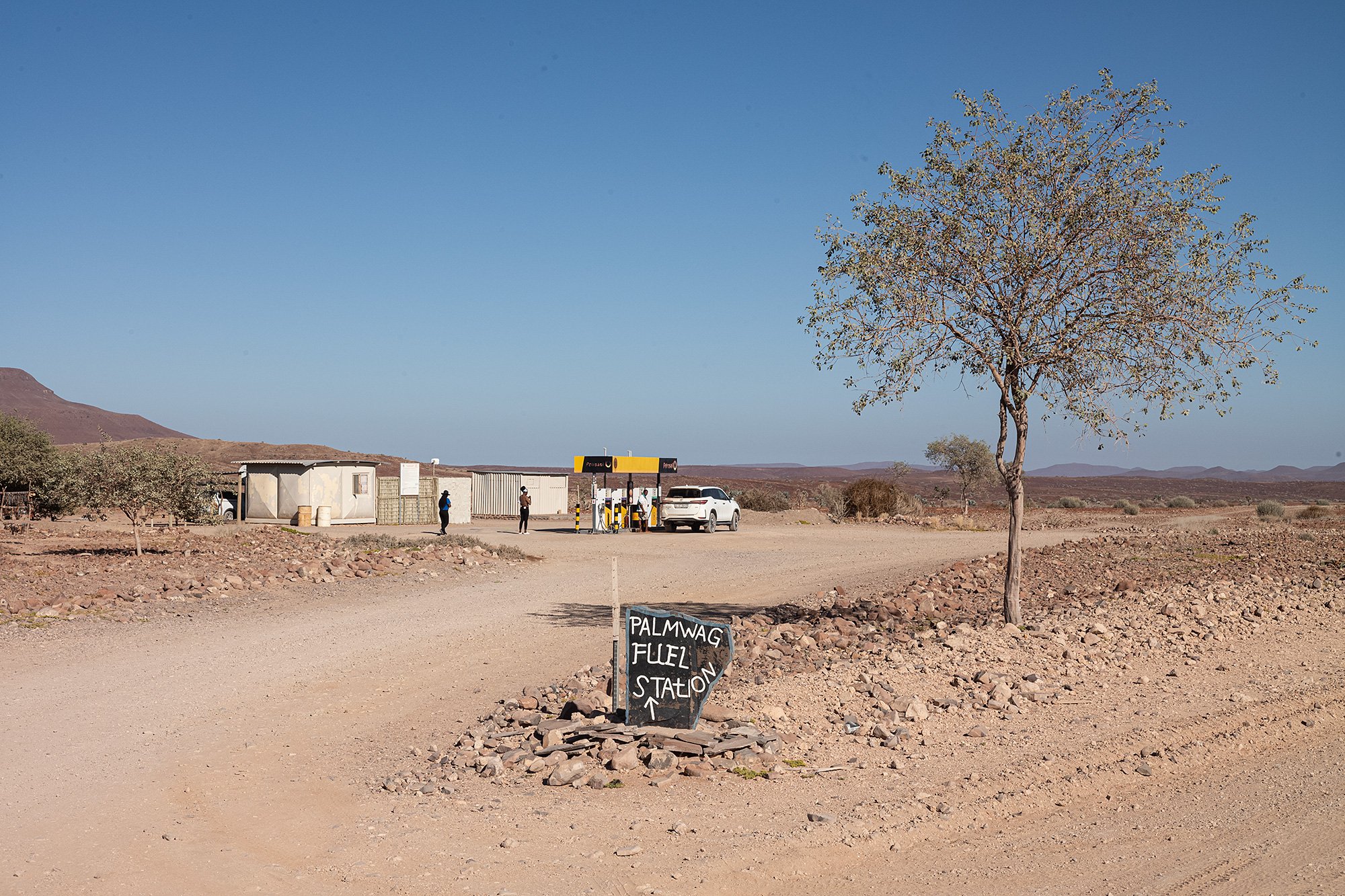
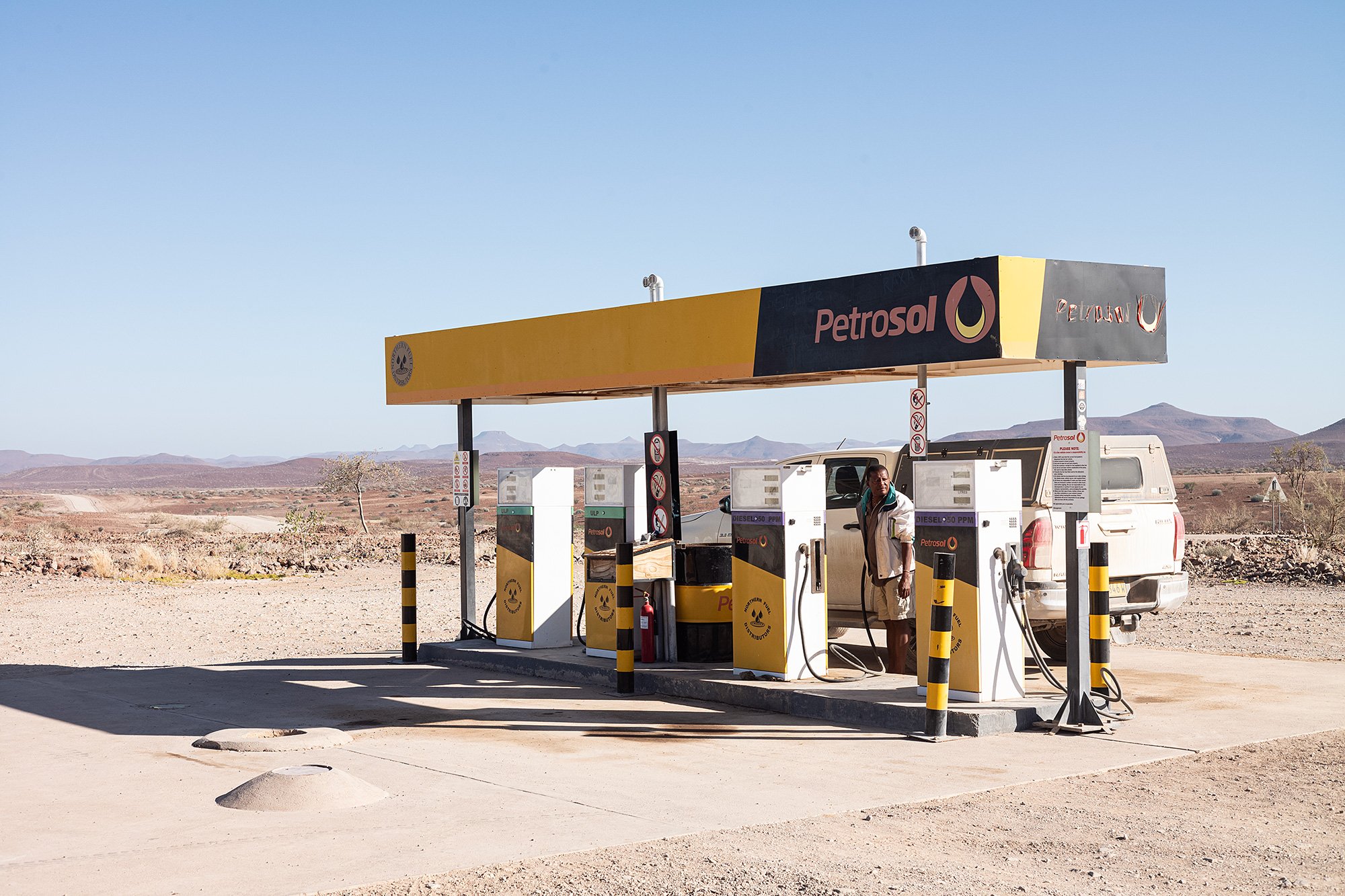
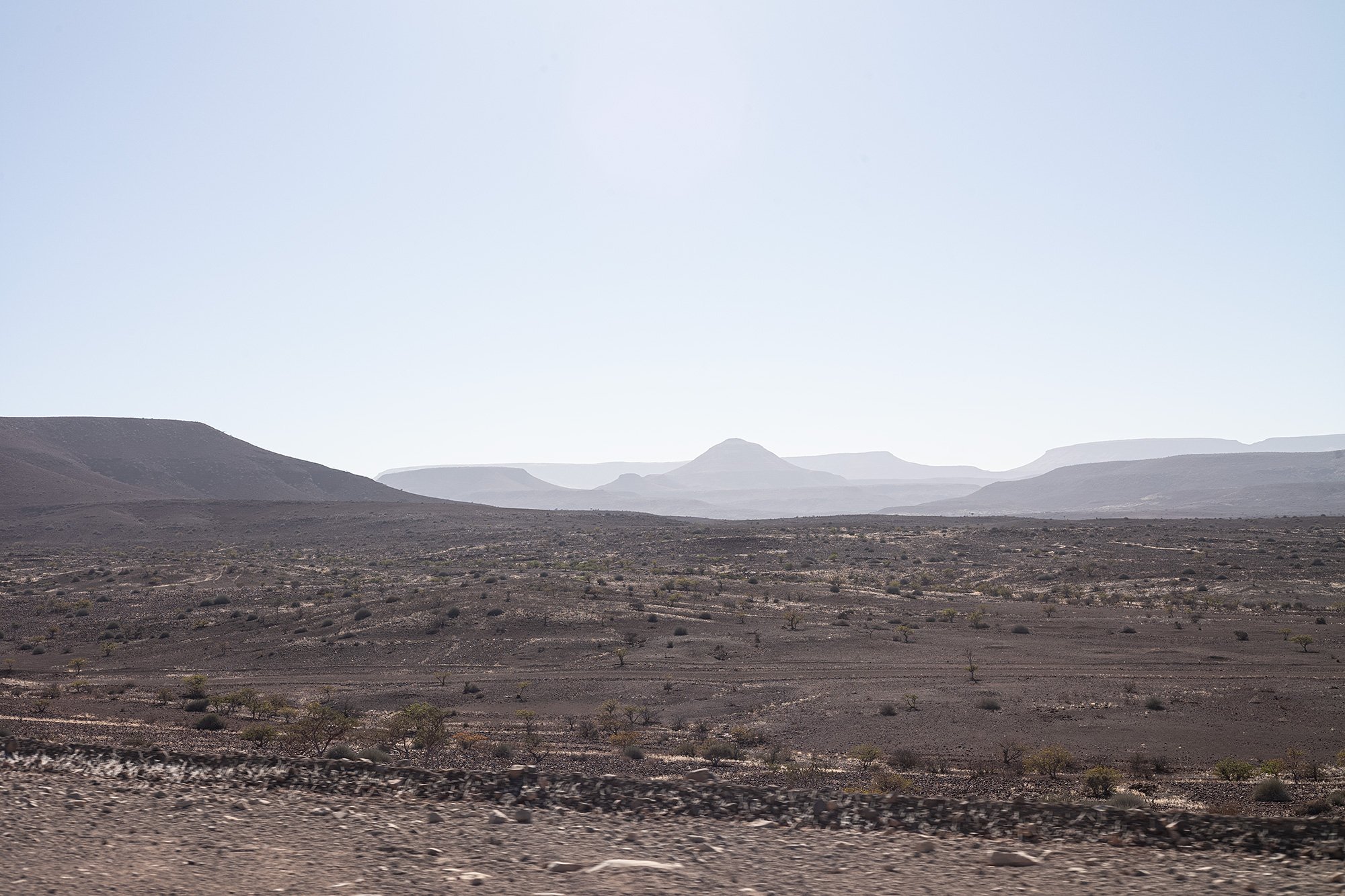
I continue north on the C43. I encounter a number of hills and gullies one laid after another. I learn my lesson when I come down too quickly and the car makes a hard dip into a gully. I start to really respect the signs that warn me to slow down.
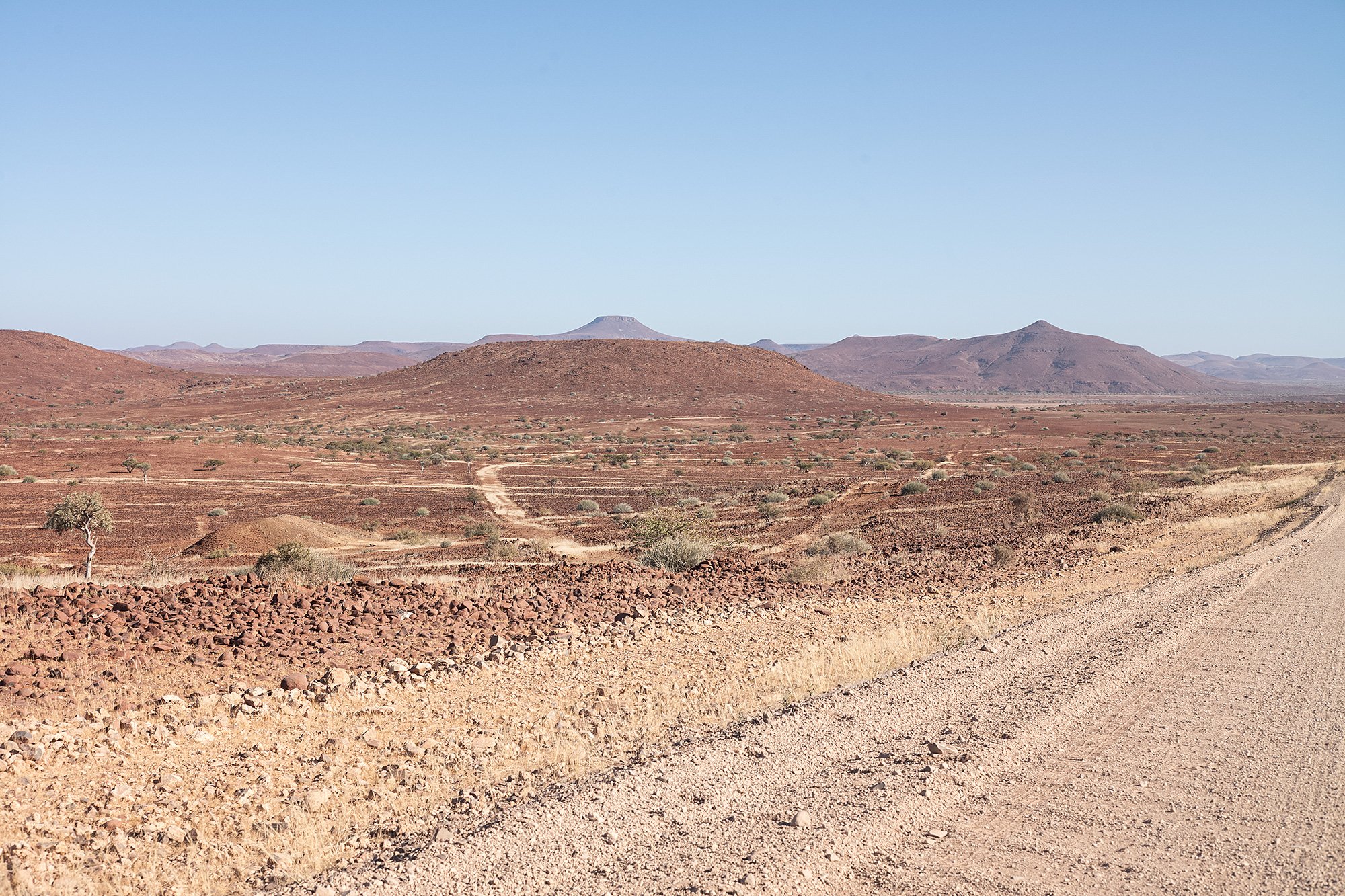
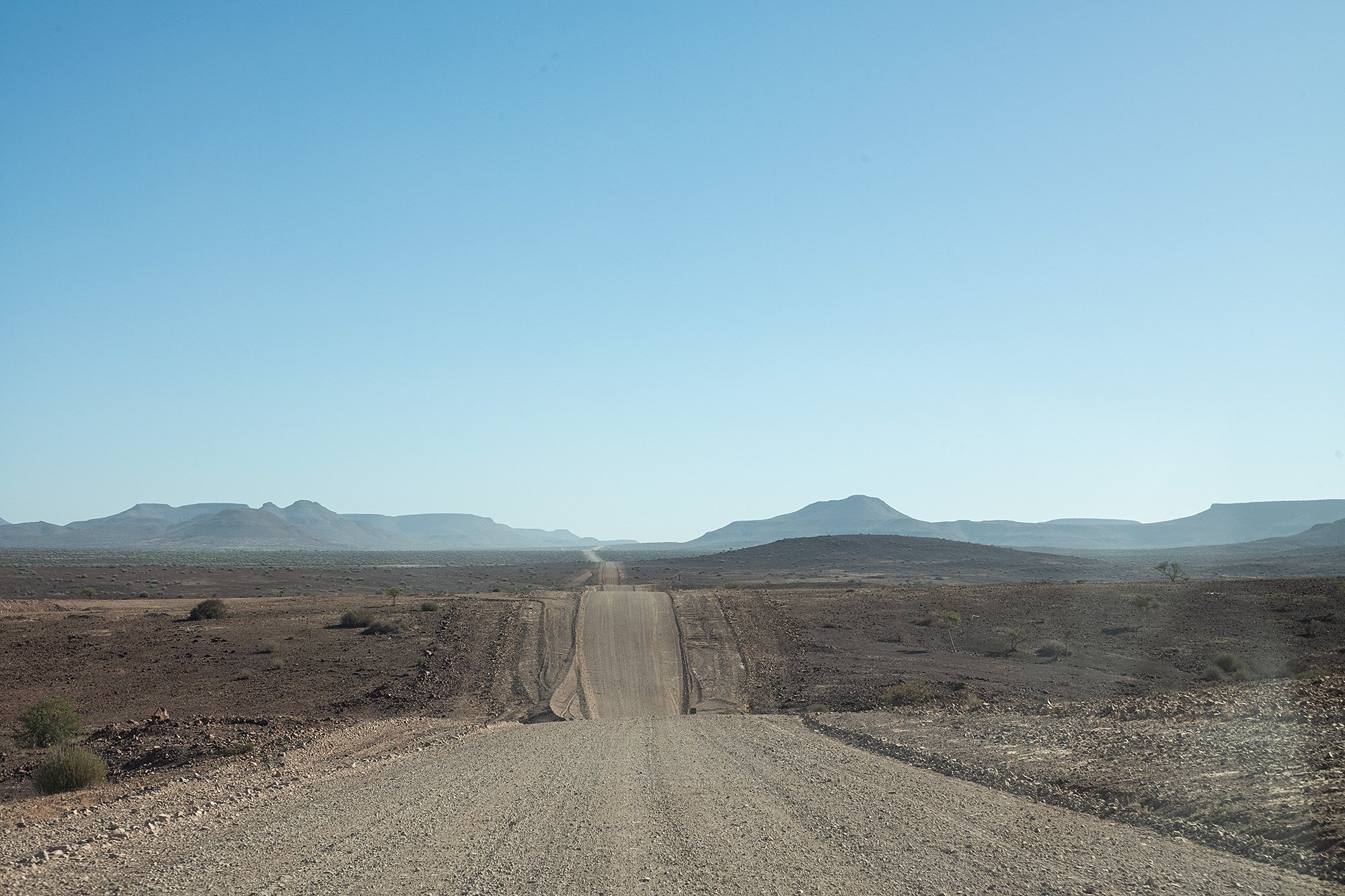
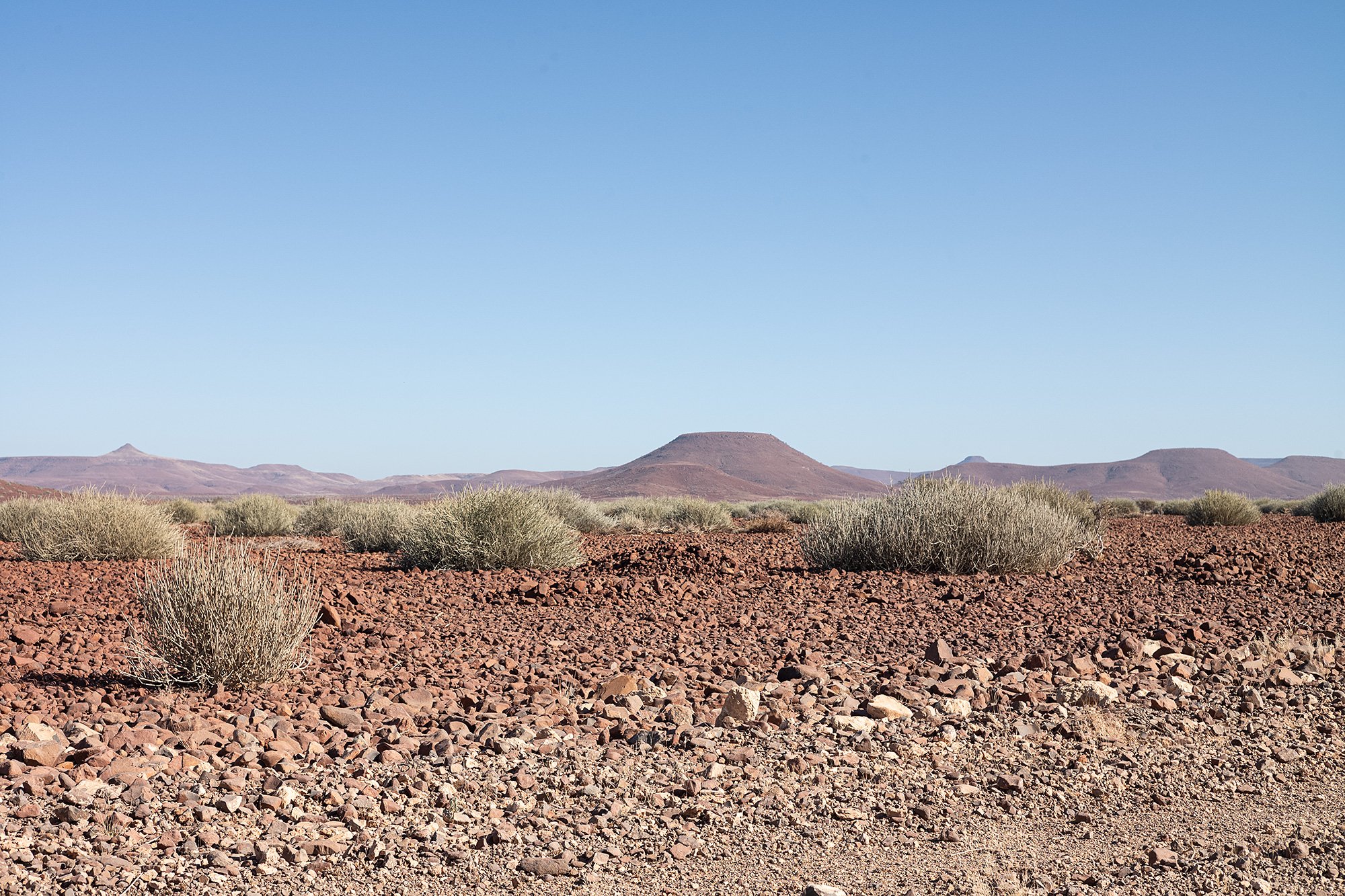
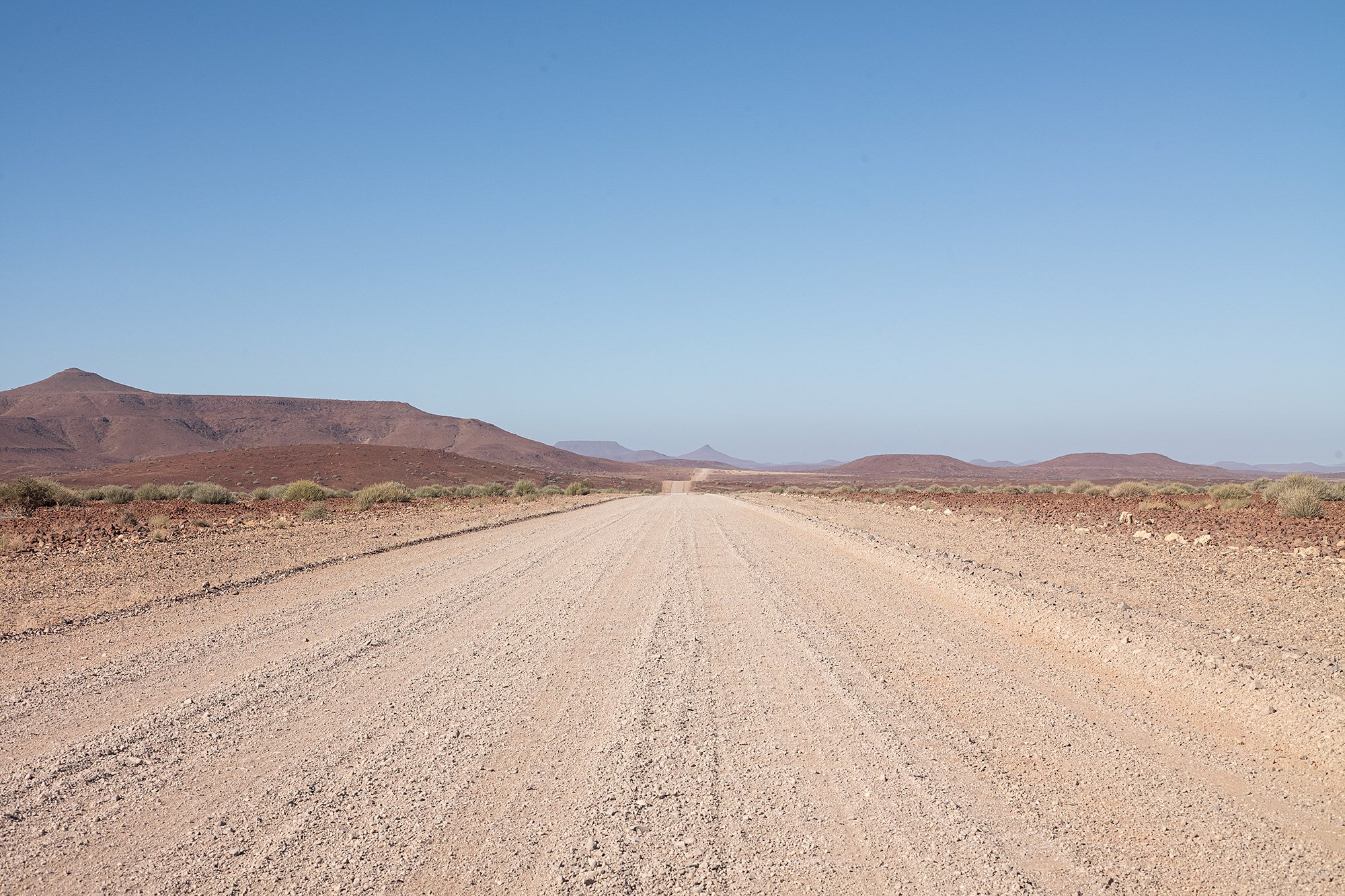
The landscape shfits as I travel north; trees slowly become more plentiful. At one bend in the road a sign warns of elephants, and I slow, hoping to spot one in the bush. I imagine the hills themselves look like the sleeping head of elephants laid to rest thousands of years ago.
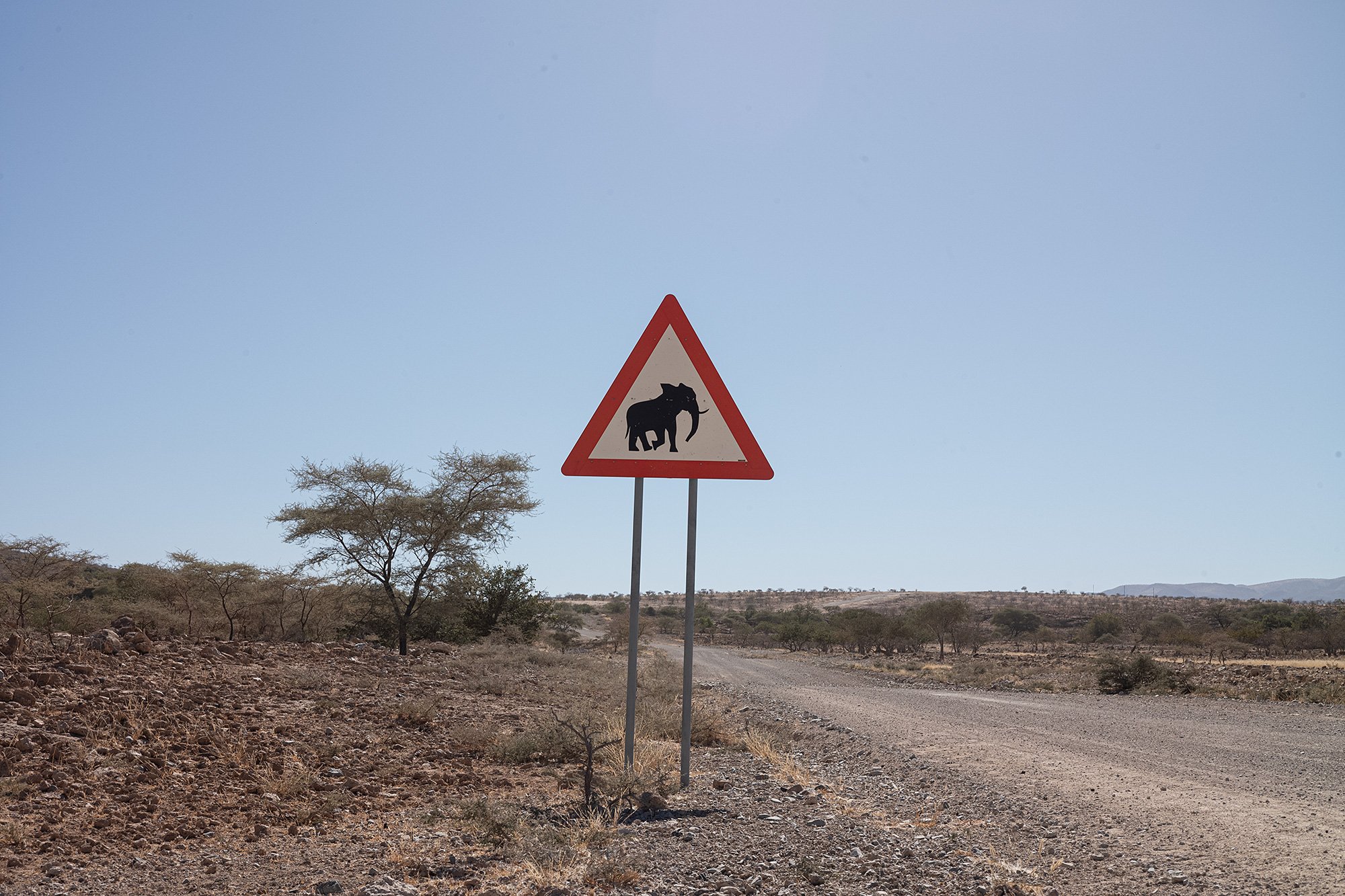
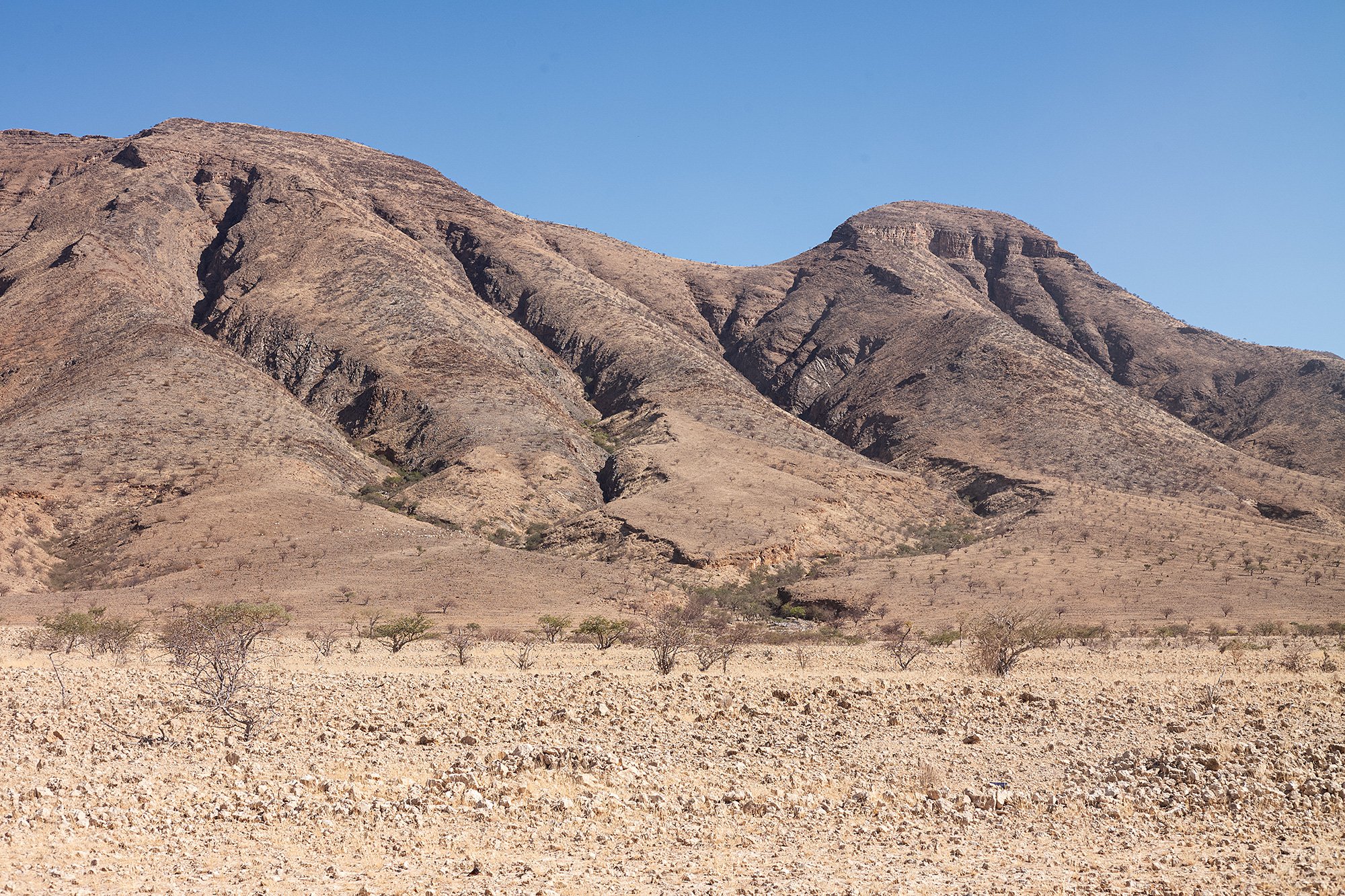
A paved portion of road up and through a notch in the mountains teases me. Dirt roads resume shortly after. I pass villagers herding their goats, once passing a small settlement where I spot a pen.
I pass a large group of people by the side of the road. Flags mark their presence. I stop to ask what it’s for and I’m told it’s a voter registration initiative. The general election is November 27 and they’ve been setting up registration booths all around the country to make sure that everyone who is eligible to vote registers and can.
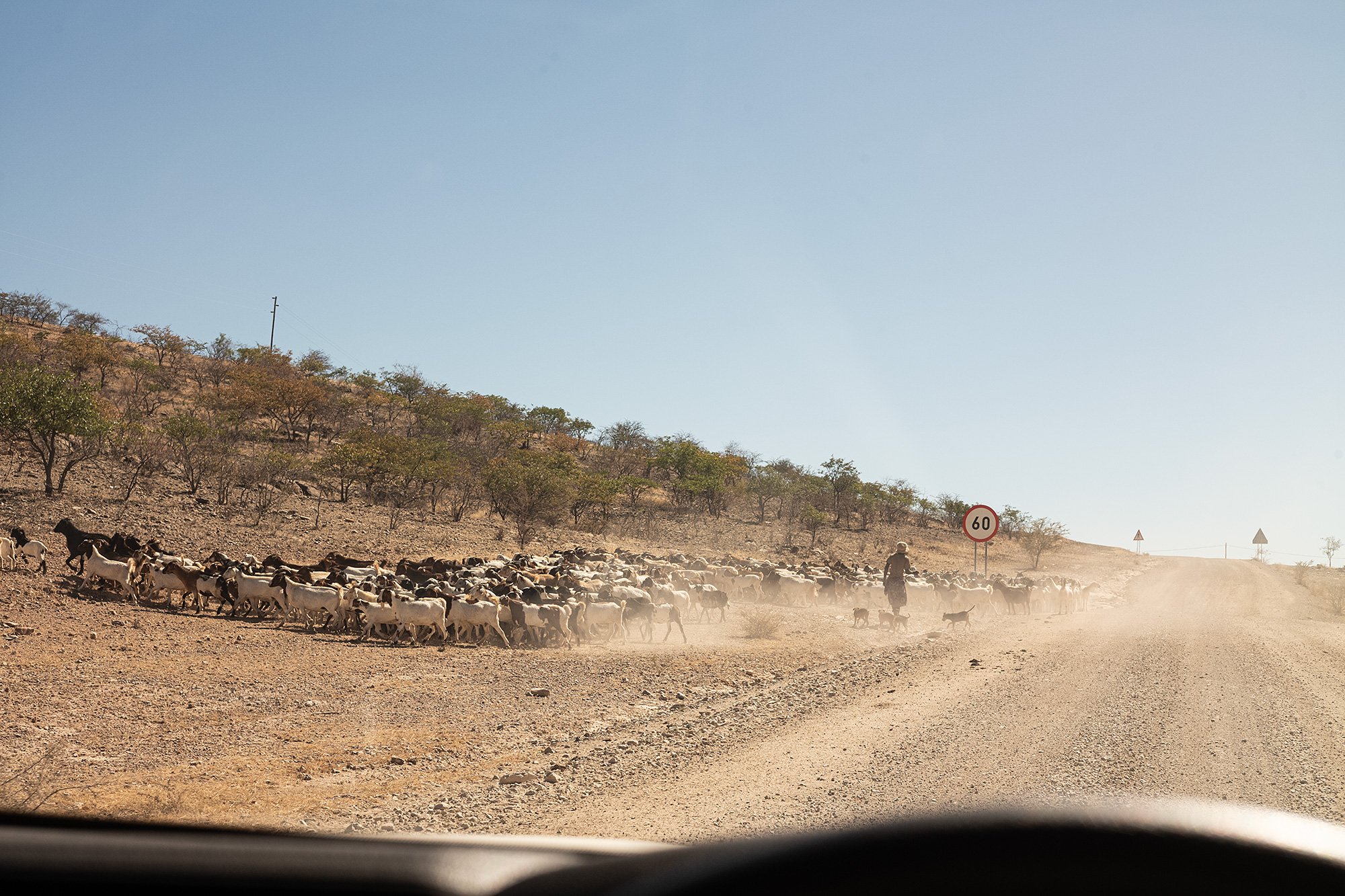
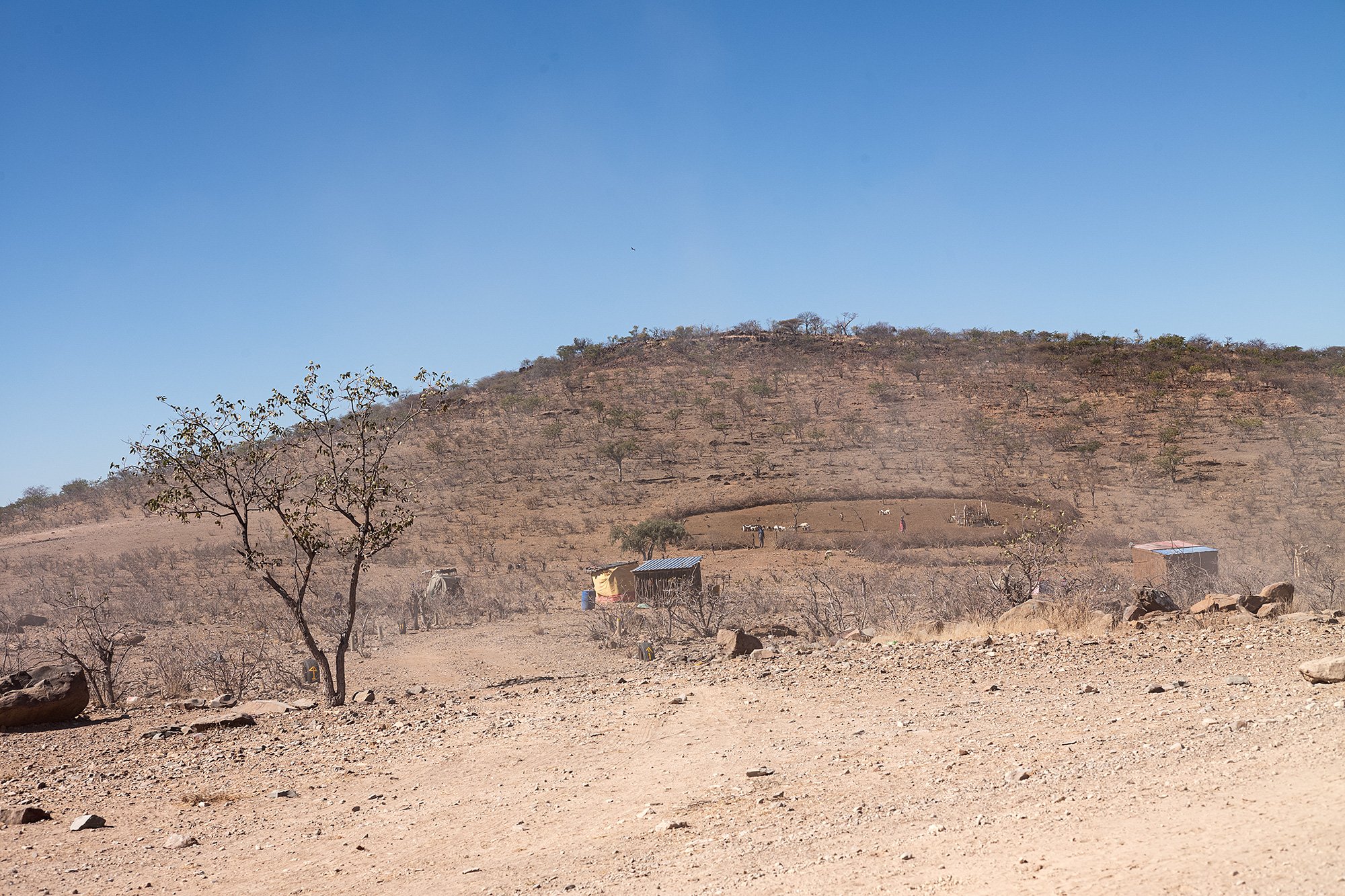
Signs point to Opuwo, the capital of the Kunene Region in north-western Namibia. It’s the largest city I’ll see since leaving Swakopmund, and the largest I’ll see before returning to Windhoek. I stop for gas and a group of women in colorful clothing surround the car, offering to sell me bracelets and carved animals. I tell them I’m not interested and head to the store for a drink.
When I return to the car, it’s still being serviced and so I take a look inside the basket of one of the women. The price of three bracelets drops dramatically and I select some to give to my neices. I’ll see them in a few months at our family reunion. The woman wanders away as soon as the transaction is complete. Other women offer to show me their crafts but I hold up the bracelets and say I’m done. They immediately lose interest in me and walk away.
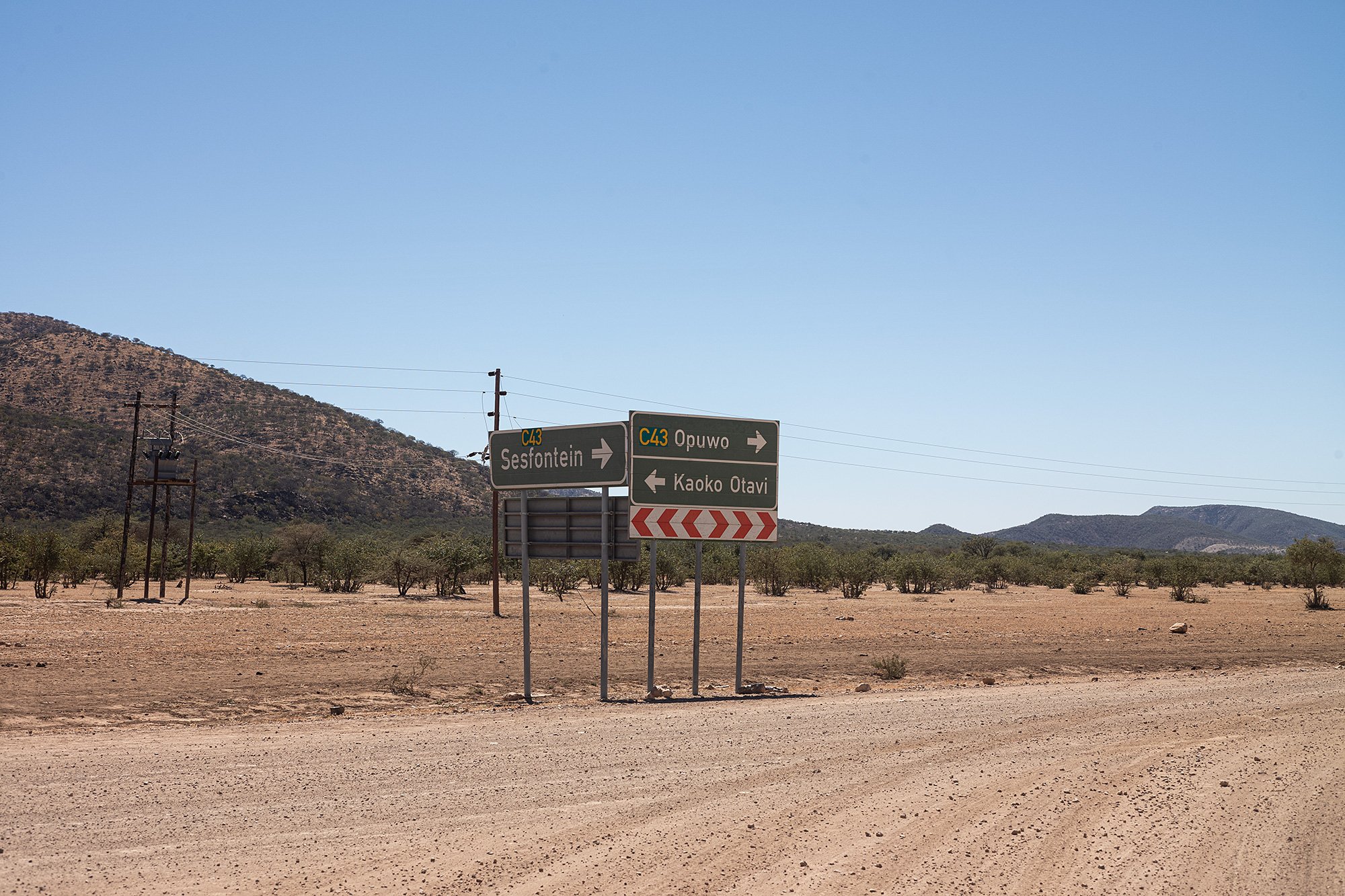
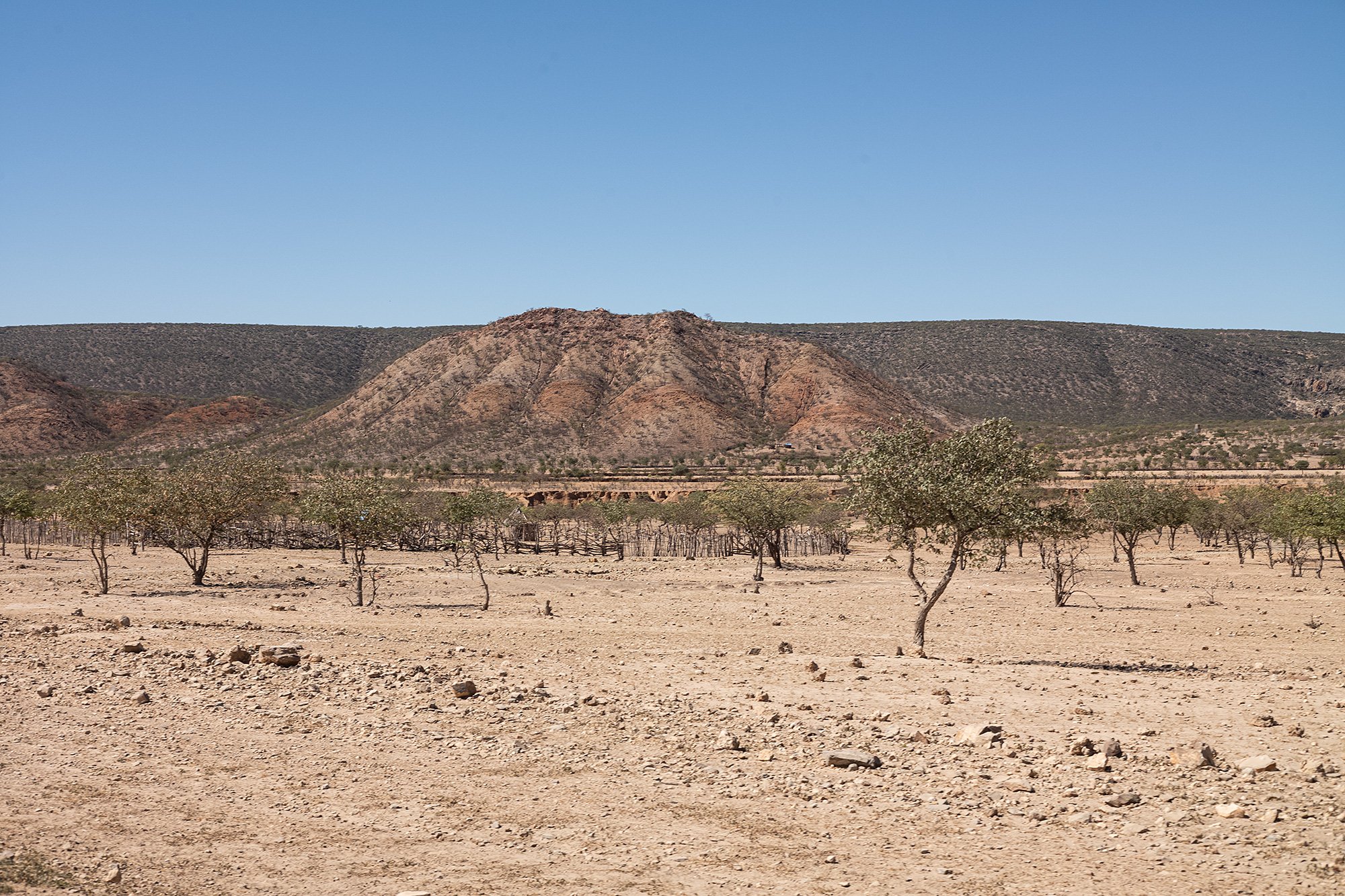
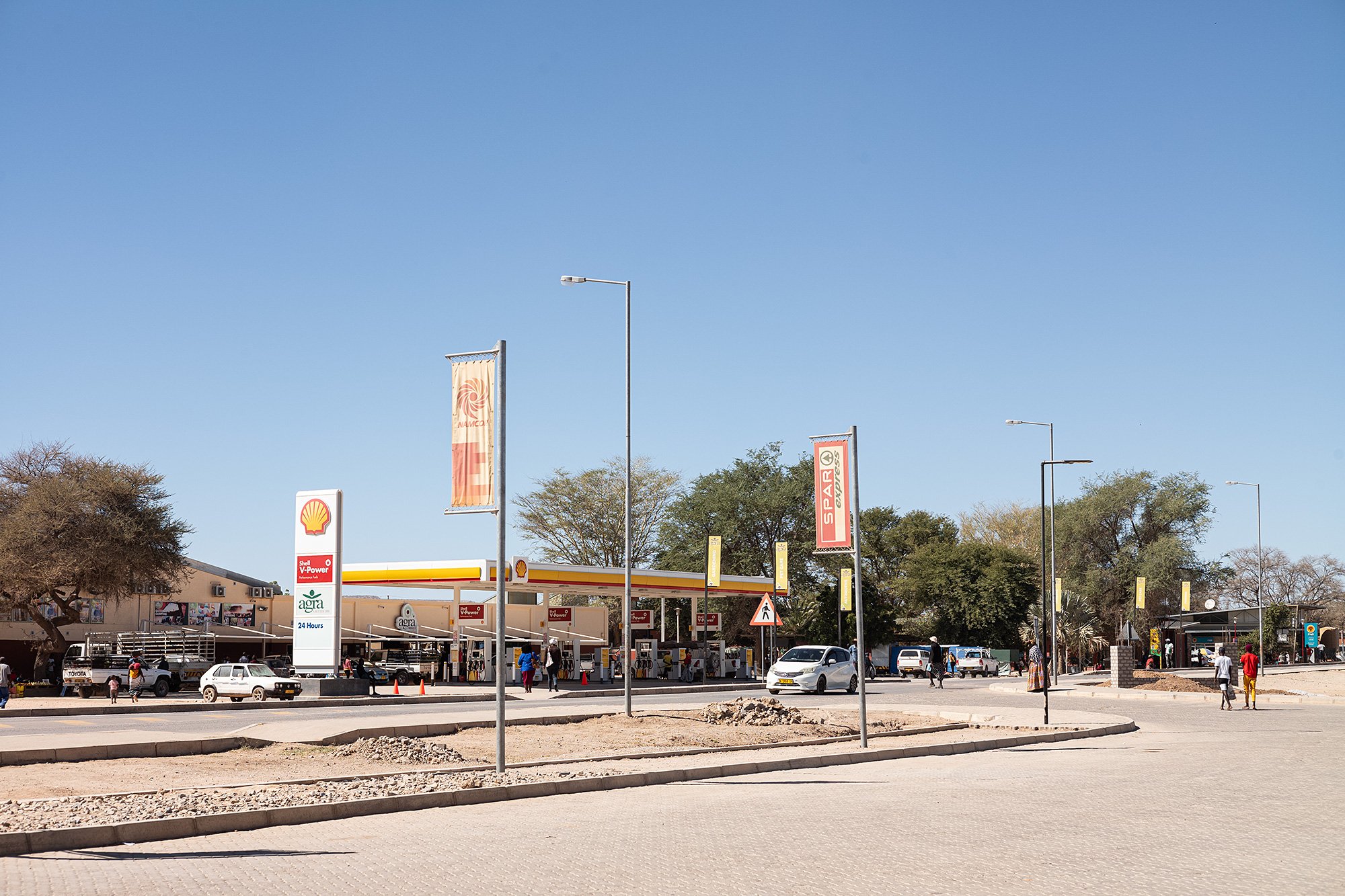
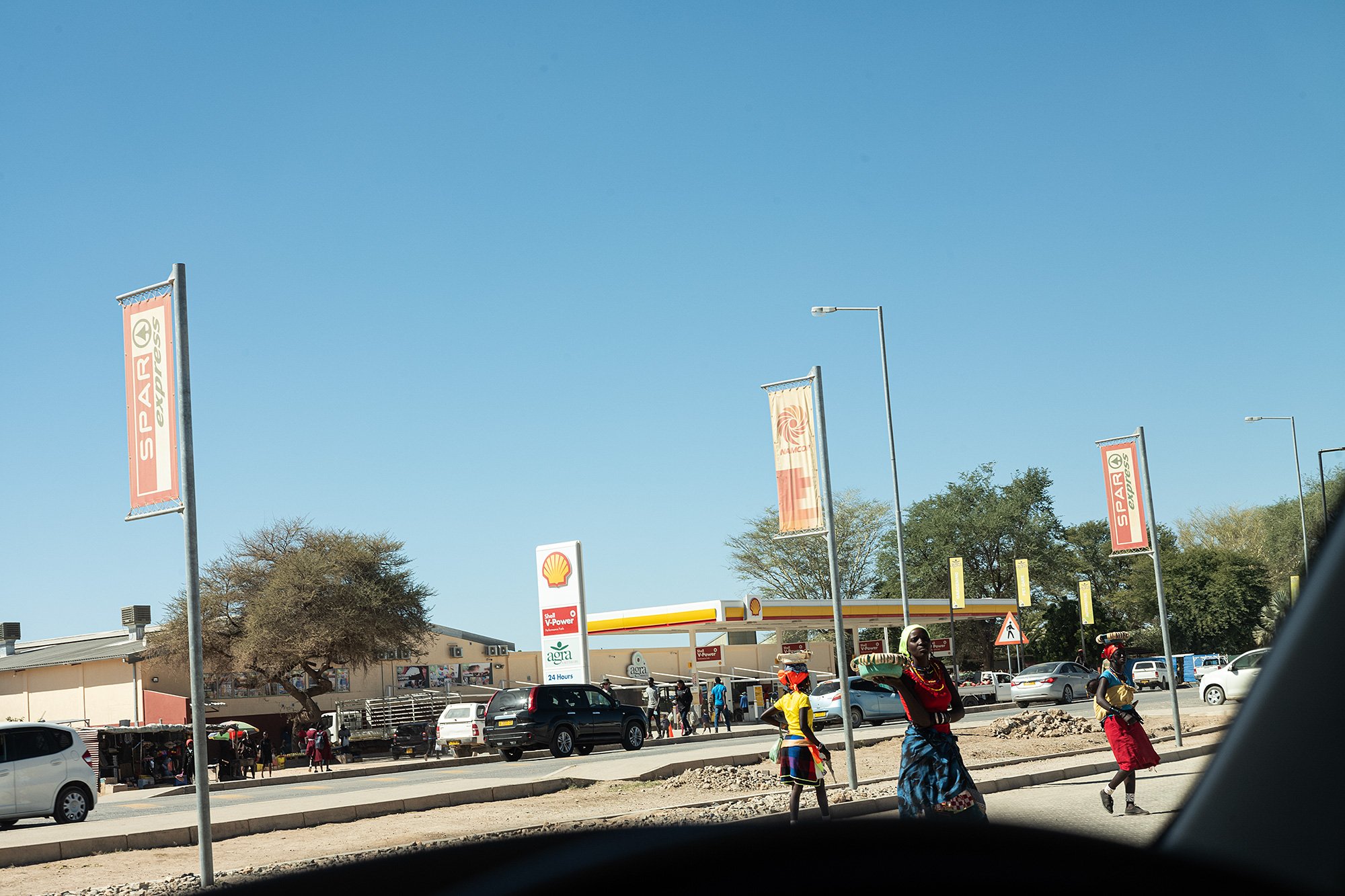
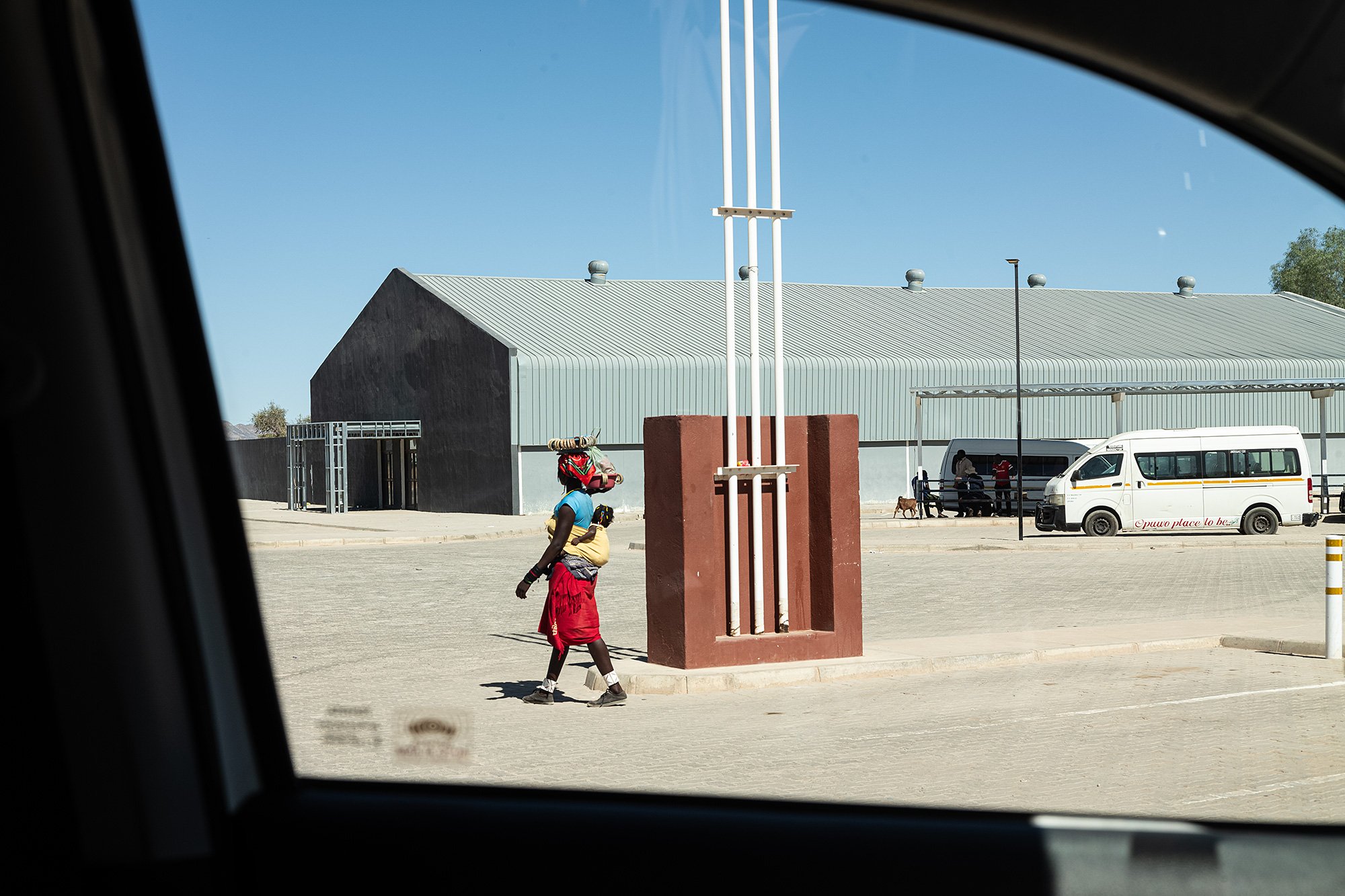
Leaving town a sign tells me it’s 180 kilometers to the falls. I’ve been driving for just over five hours and the GPS tells me I have almost three more to go. I take a breath and select a playlist for the rest of the way.
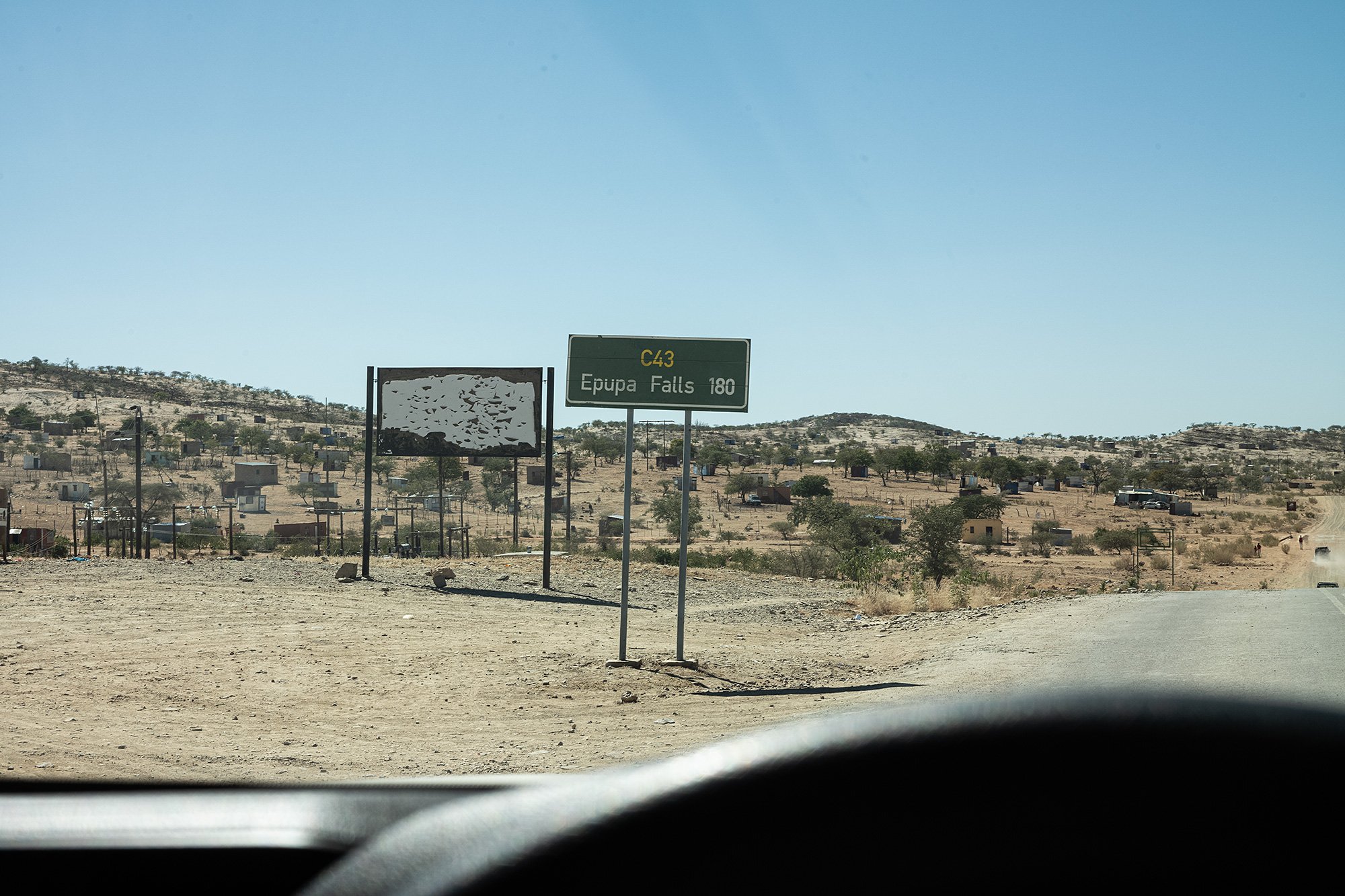
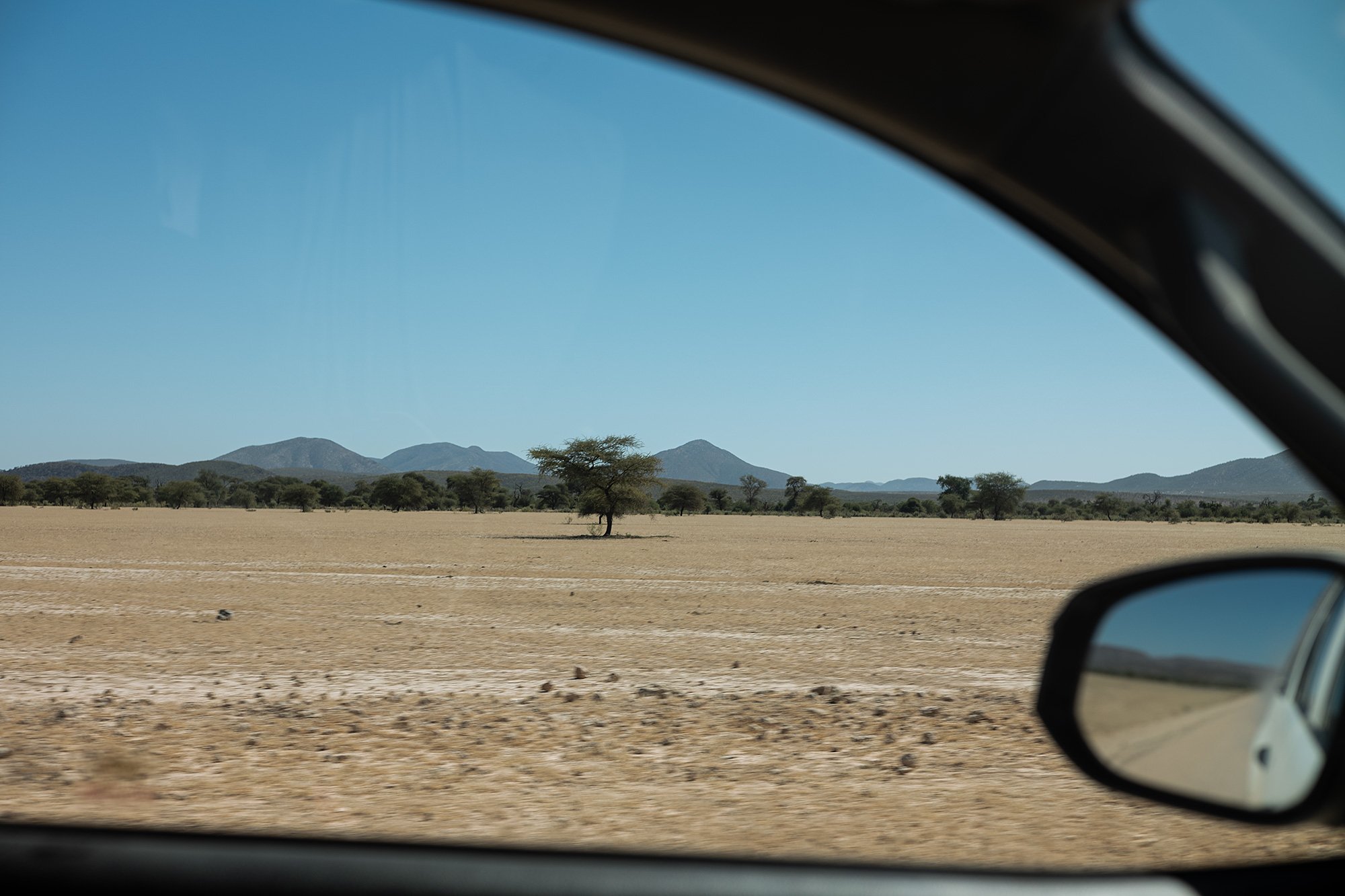
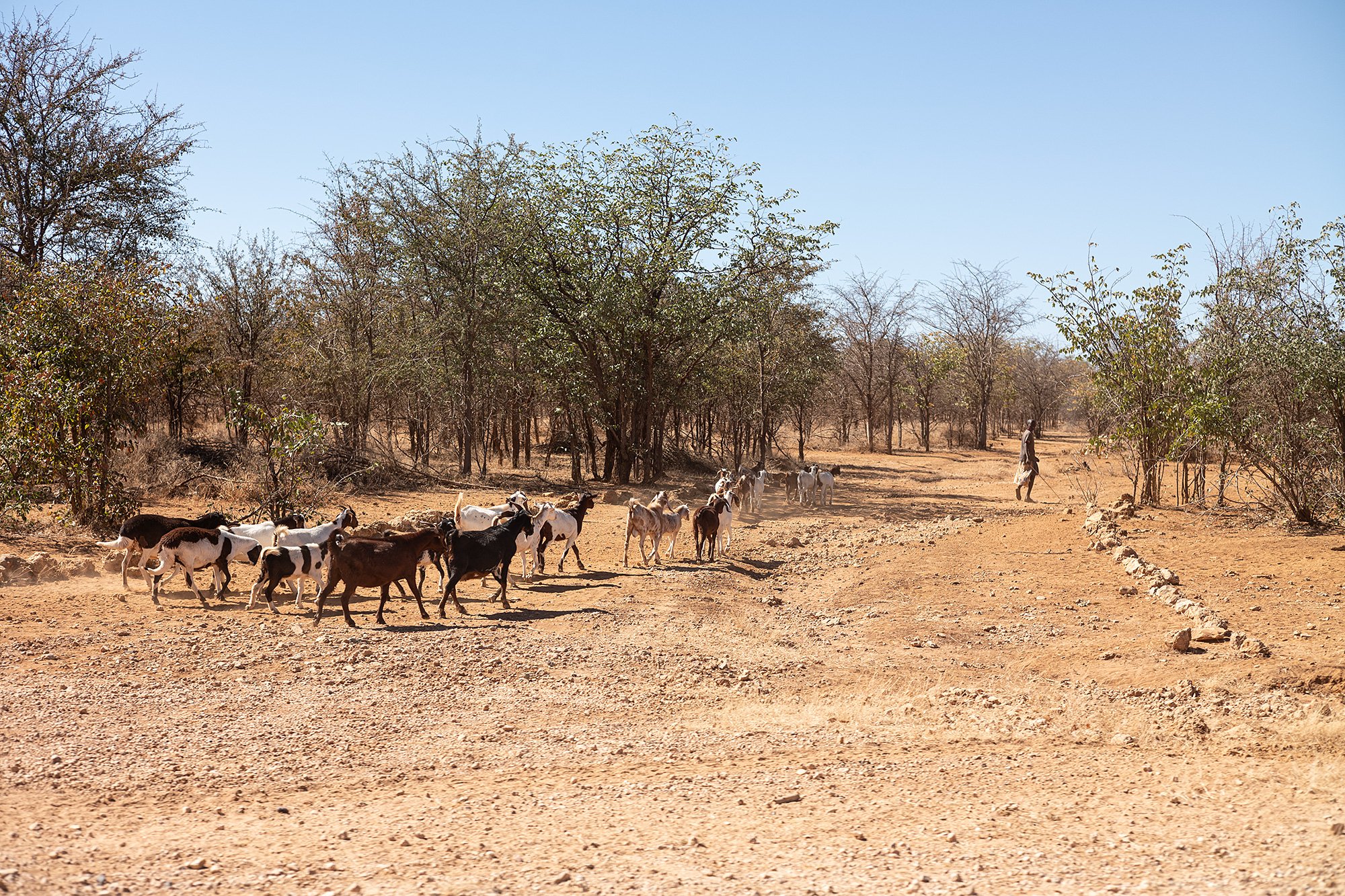
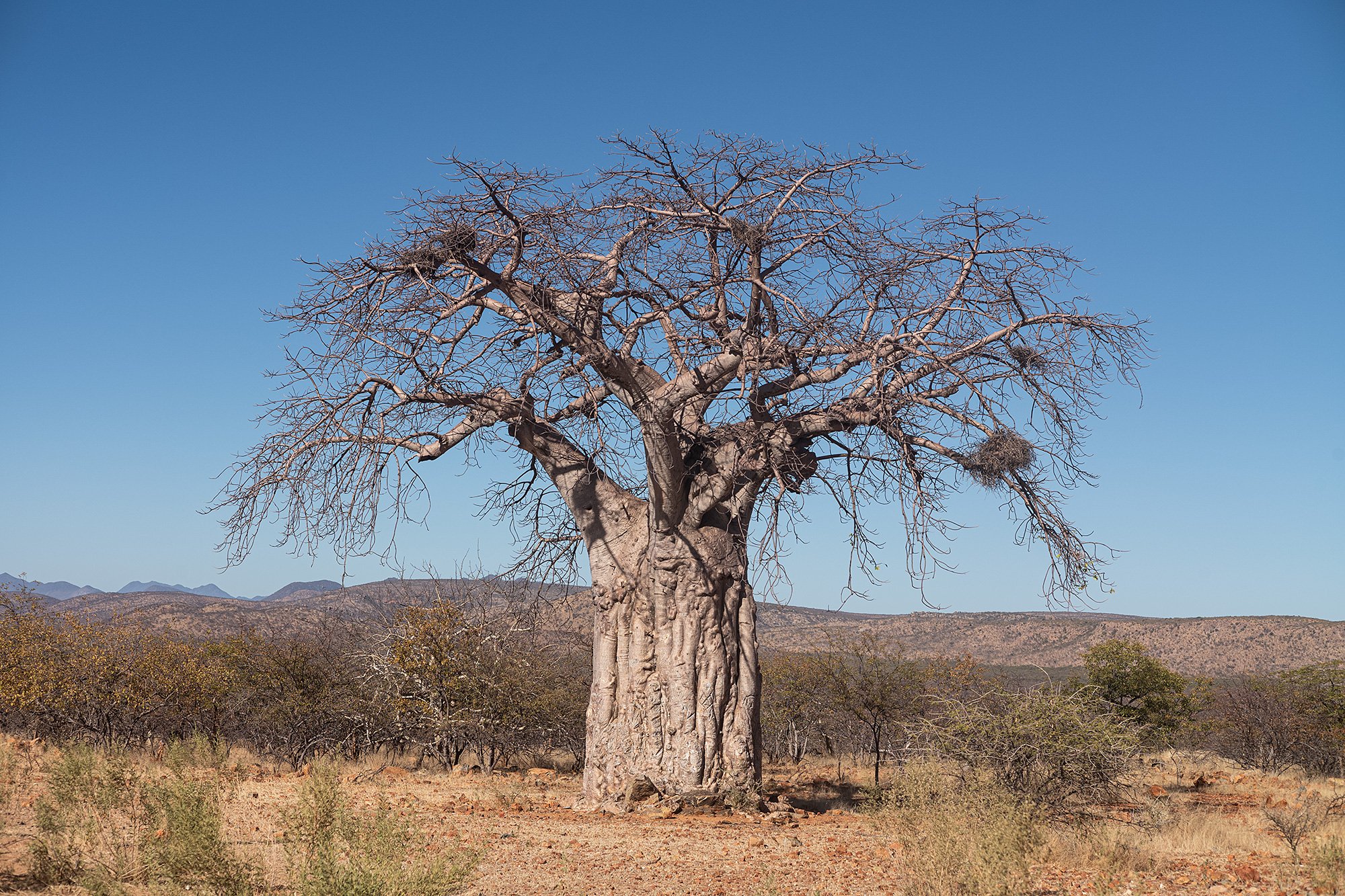
I pass a sign etched into the side of a rock. Thirty-six kilometers to Epupa. I pass a small Himba village and the GPS tells me I’m almost there. I can smell and feel the moisture in the air, but nothing suggests a river let alone the falls. When I’m only a few kilometers away I look at the road head. It’s as dry and dusty as all the others I’ve driven today.
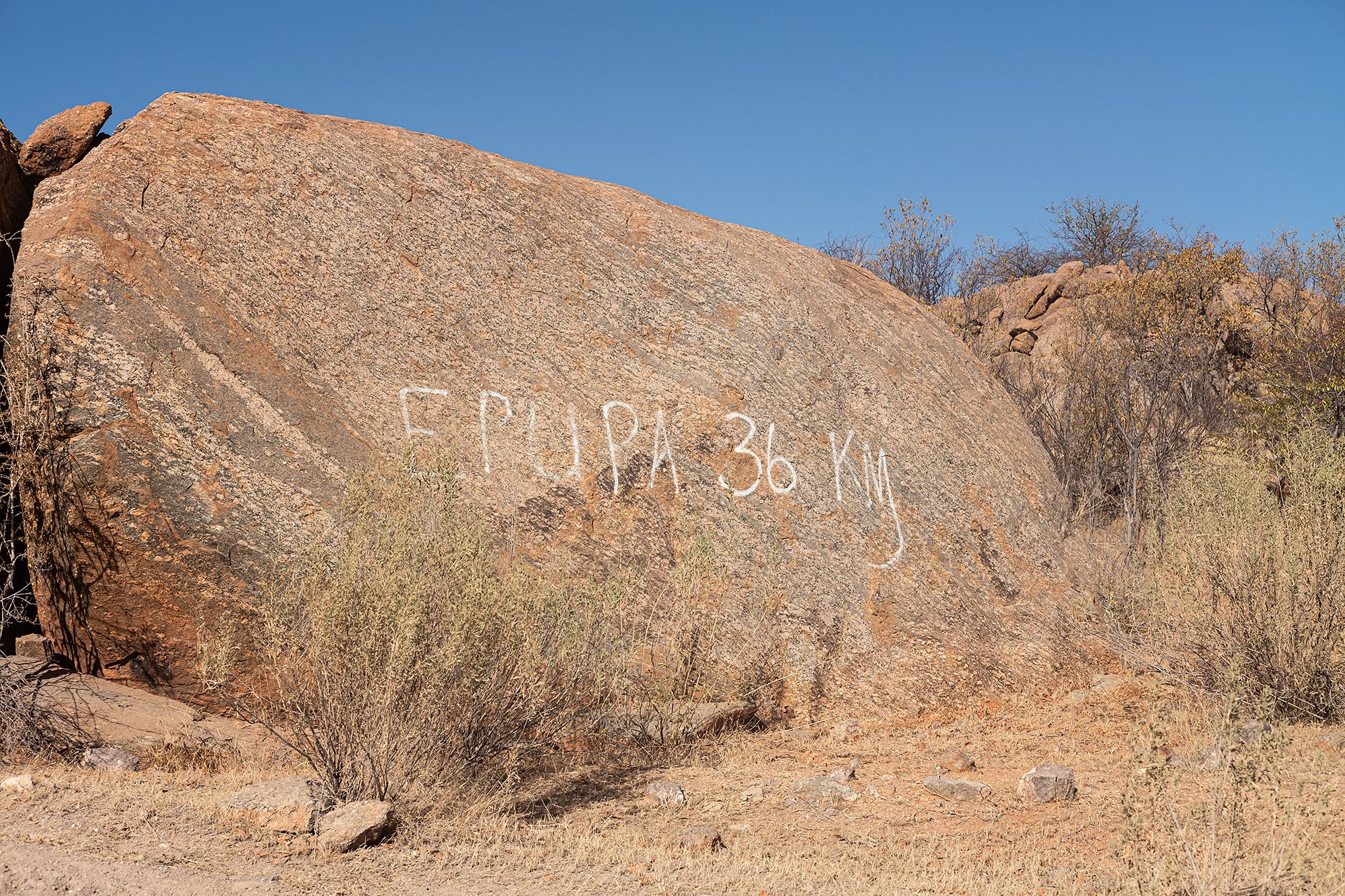
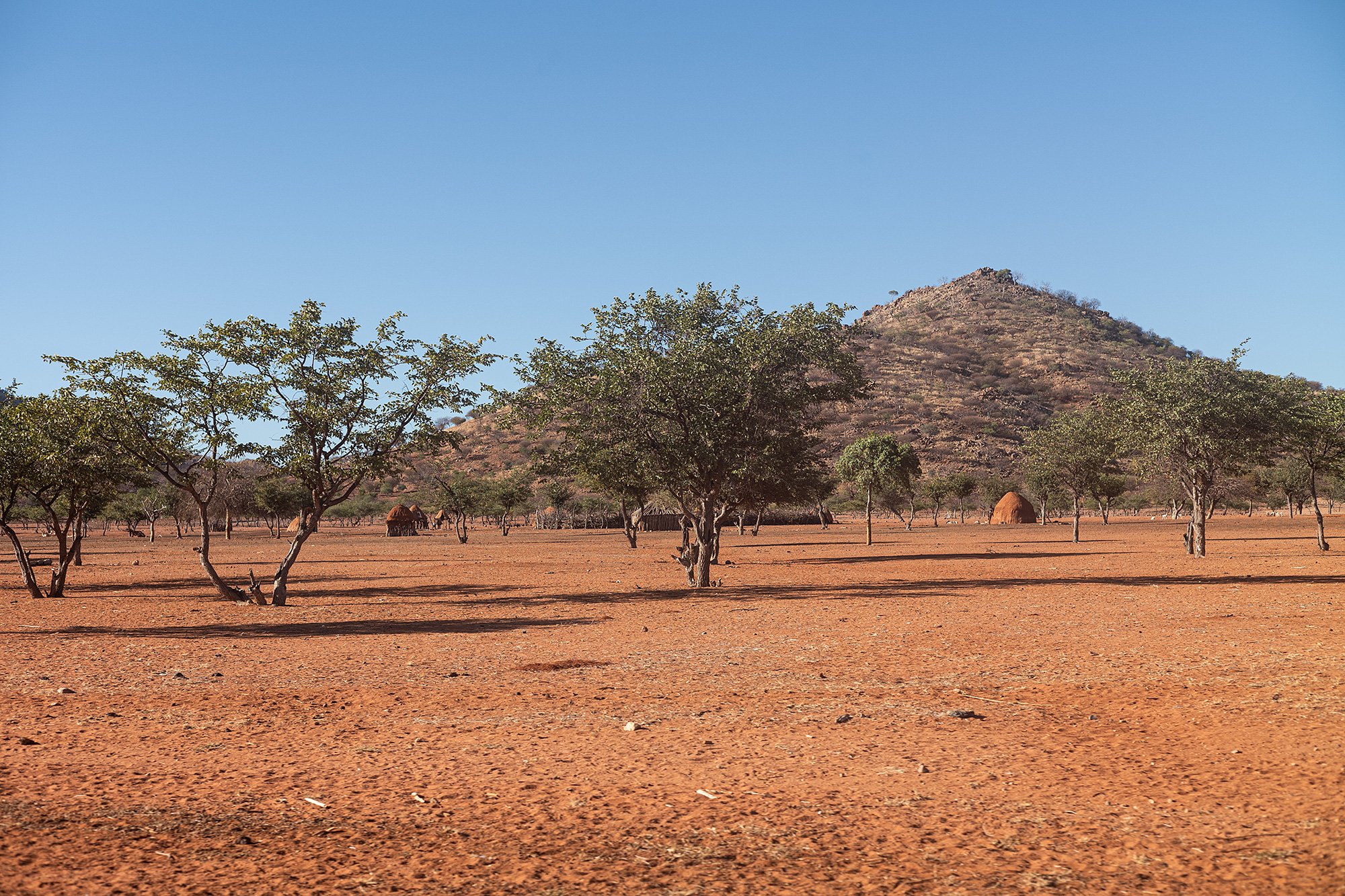
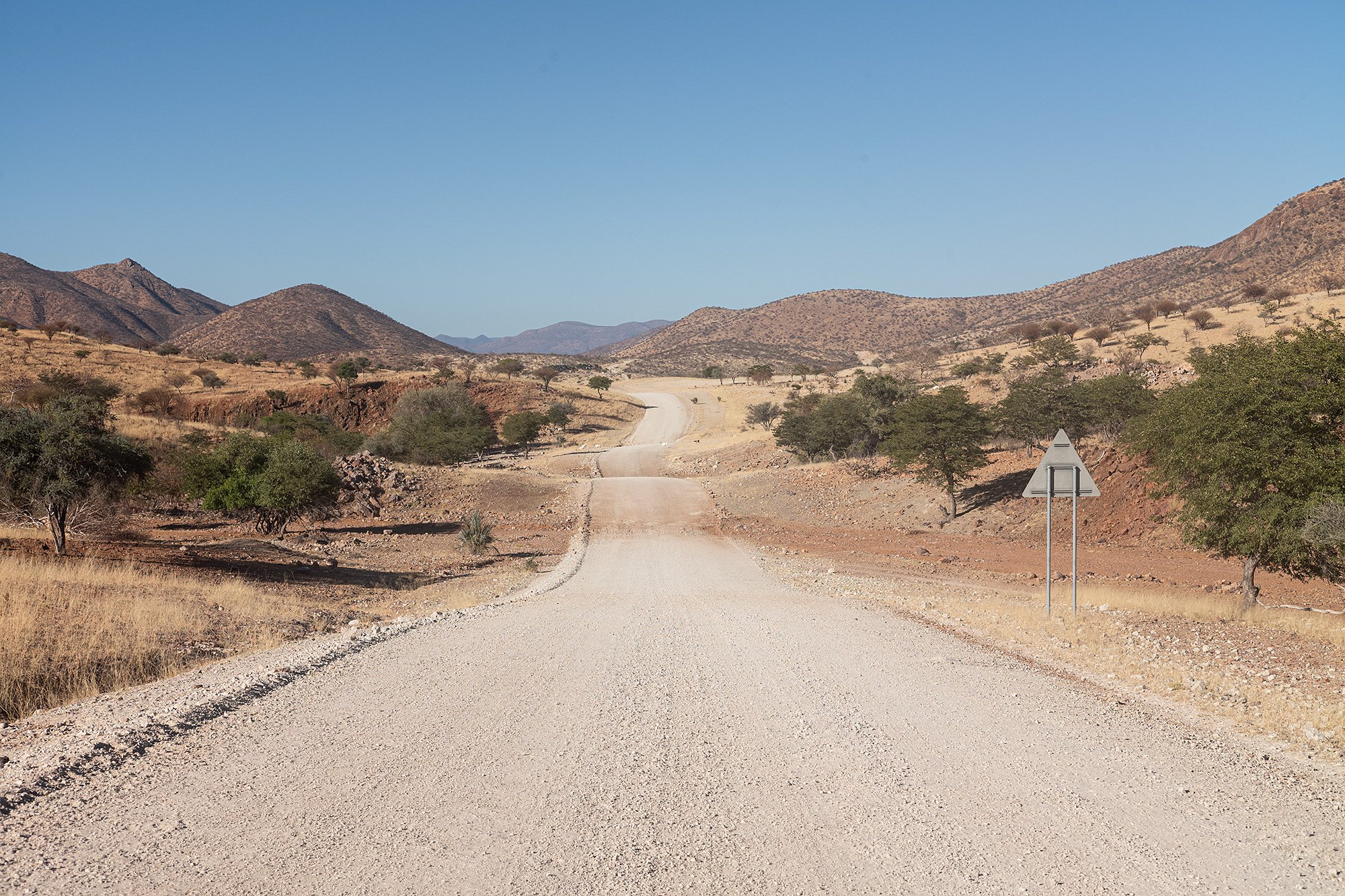
Just outside of town I see a sign pointing to the left advertising a viewpoint for the falls. I still haven’t seen the river and decide that I may as well check out the viewpoint before arriving in the town proper. Olivia climbs the rocky path to the campground and overlook and I’m rewarded with my first look at the Cunene River, Angola, and the falls, a series of cataracts spread out over the span of a kilometer and a half. It’s an awesome introduction to the falls.
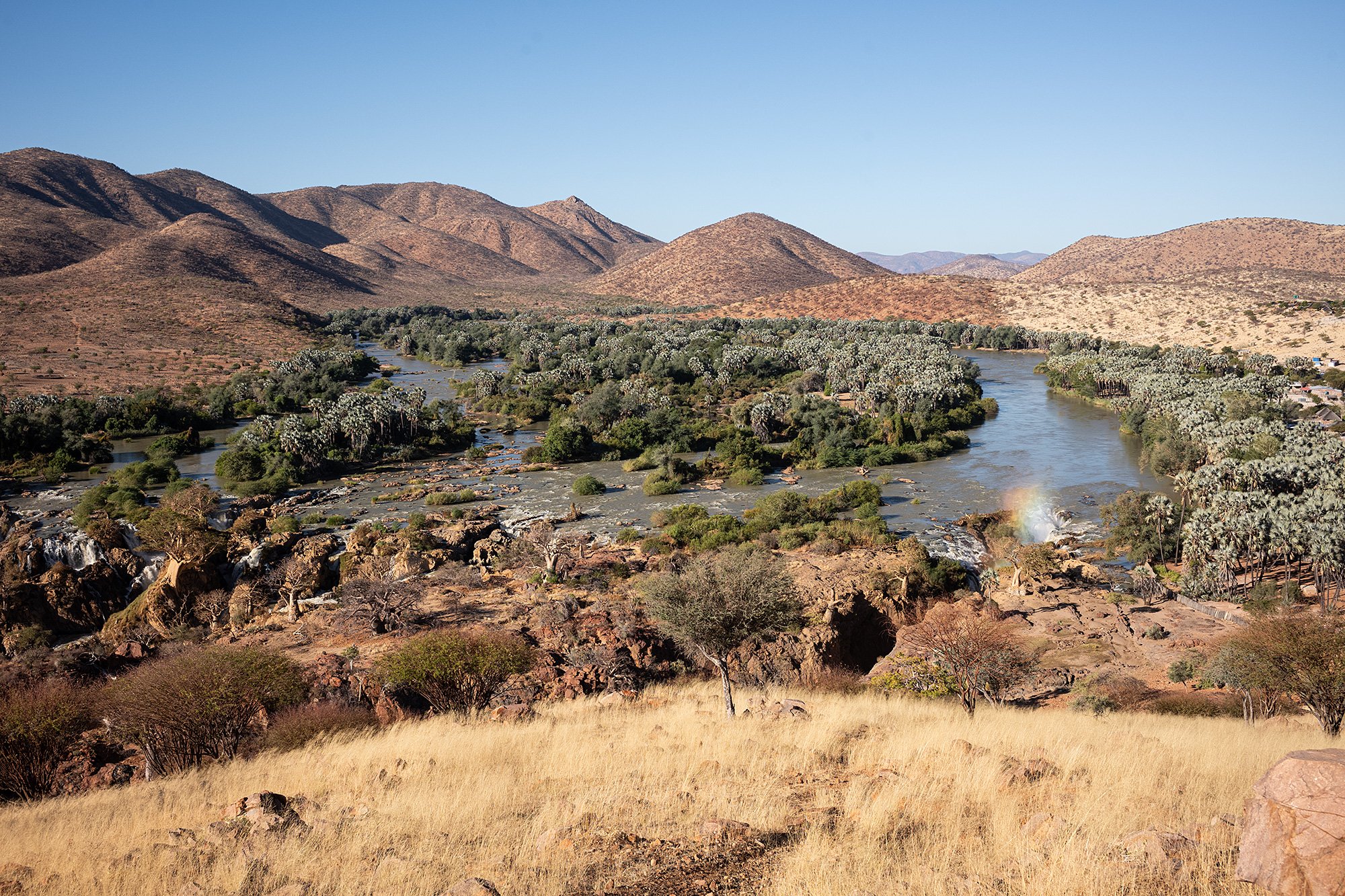
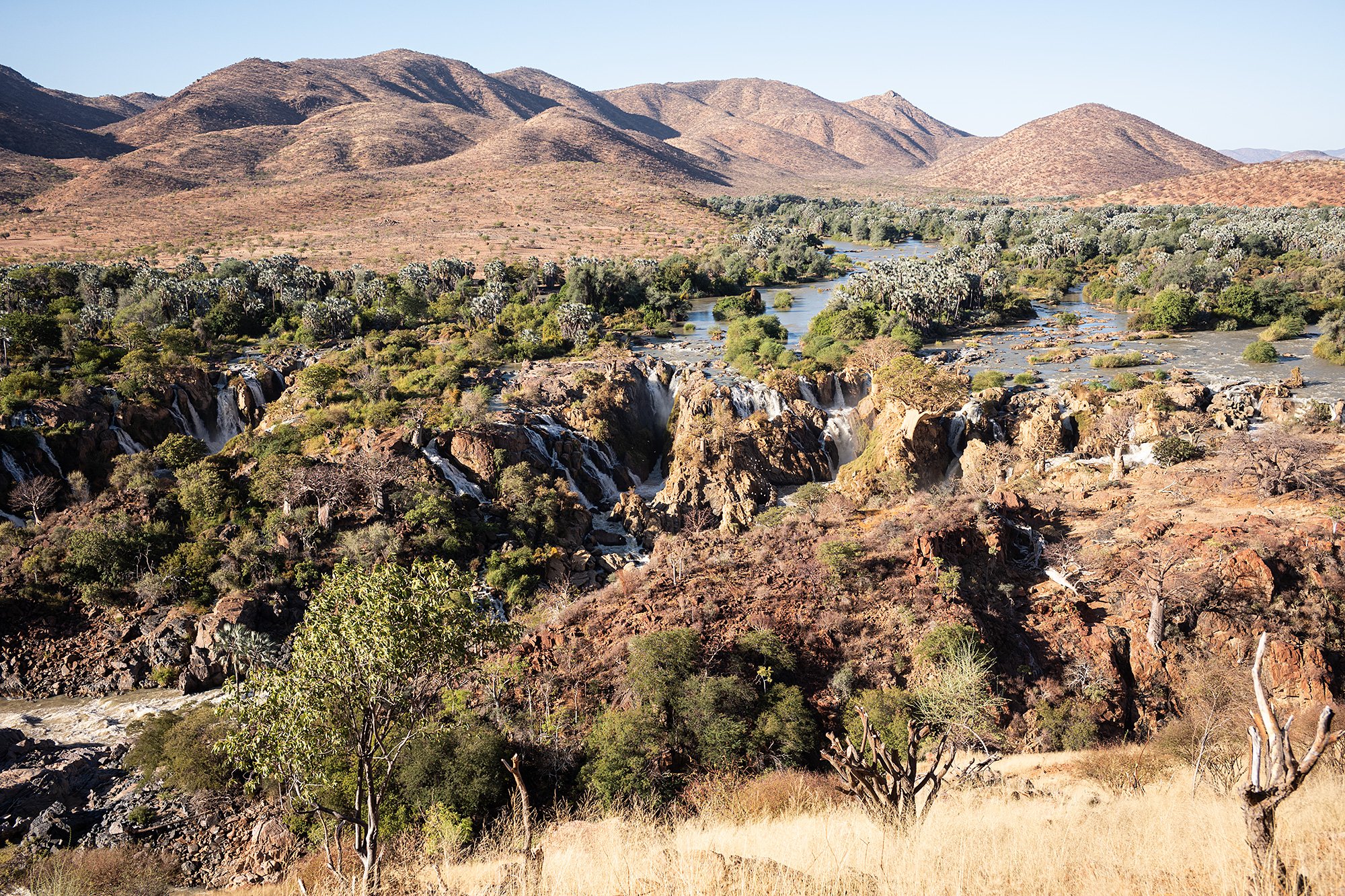
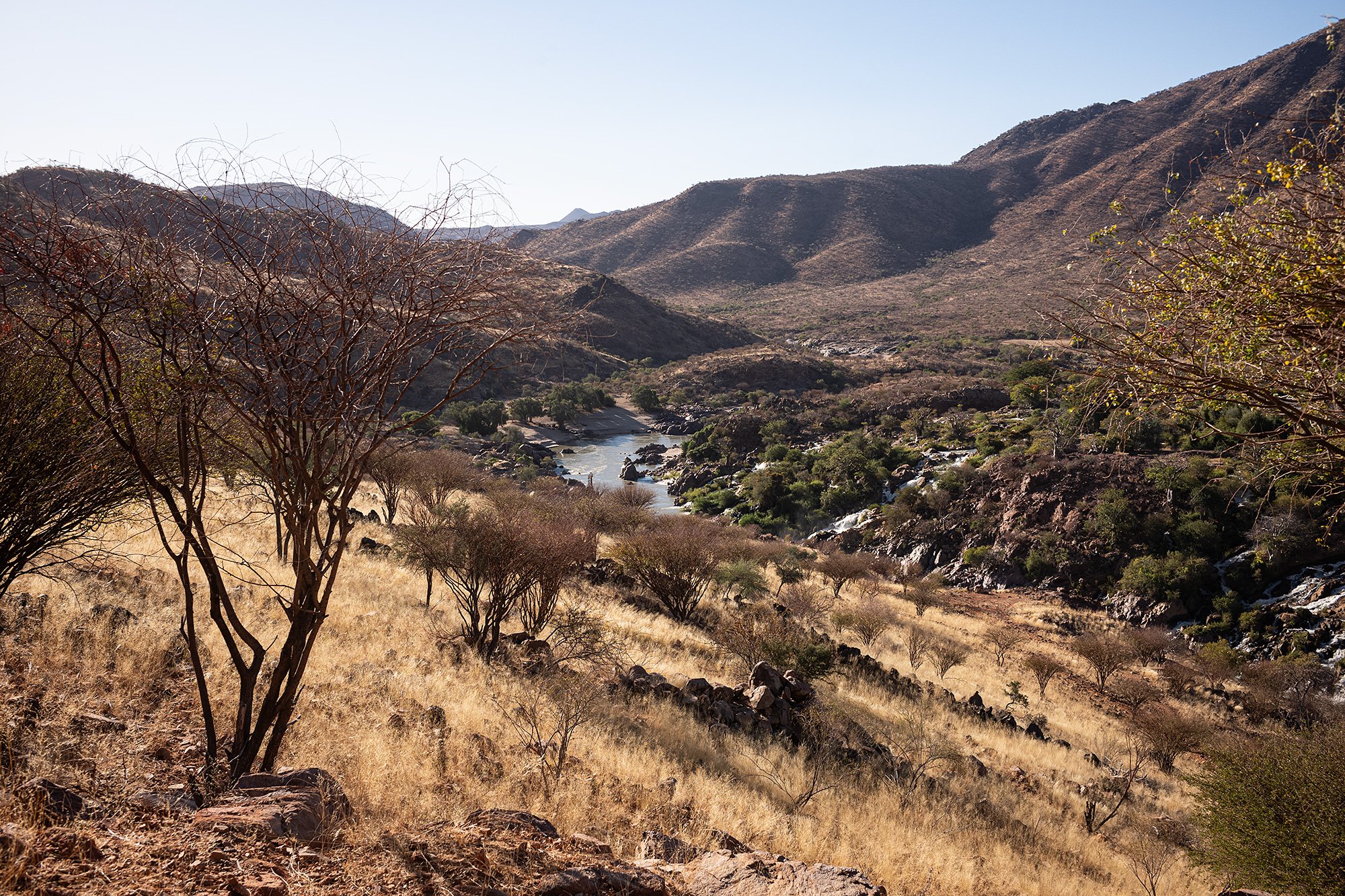
A group of Europeans living in Windhoek arrive shortly after me. They take photos of each other and I strike up a conversation with one of them. She asks where I’m staying. I tell her and she tells me she’s in the Wilderness. There’s not many options and she surmises she’ll see me at dinner. I tell her I look forward to it.
In the end, I’m staying at a more basic accommodation next to the Wilderness. I’m led to a cottage by the river with views of the river just before it drops. It’s the closest structure to the falls and I can hear it thunder through the slatted walls. With the window open I can see the foam rise.
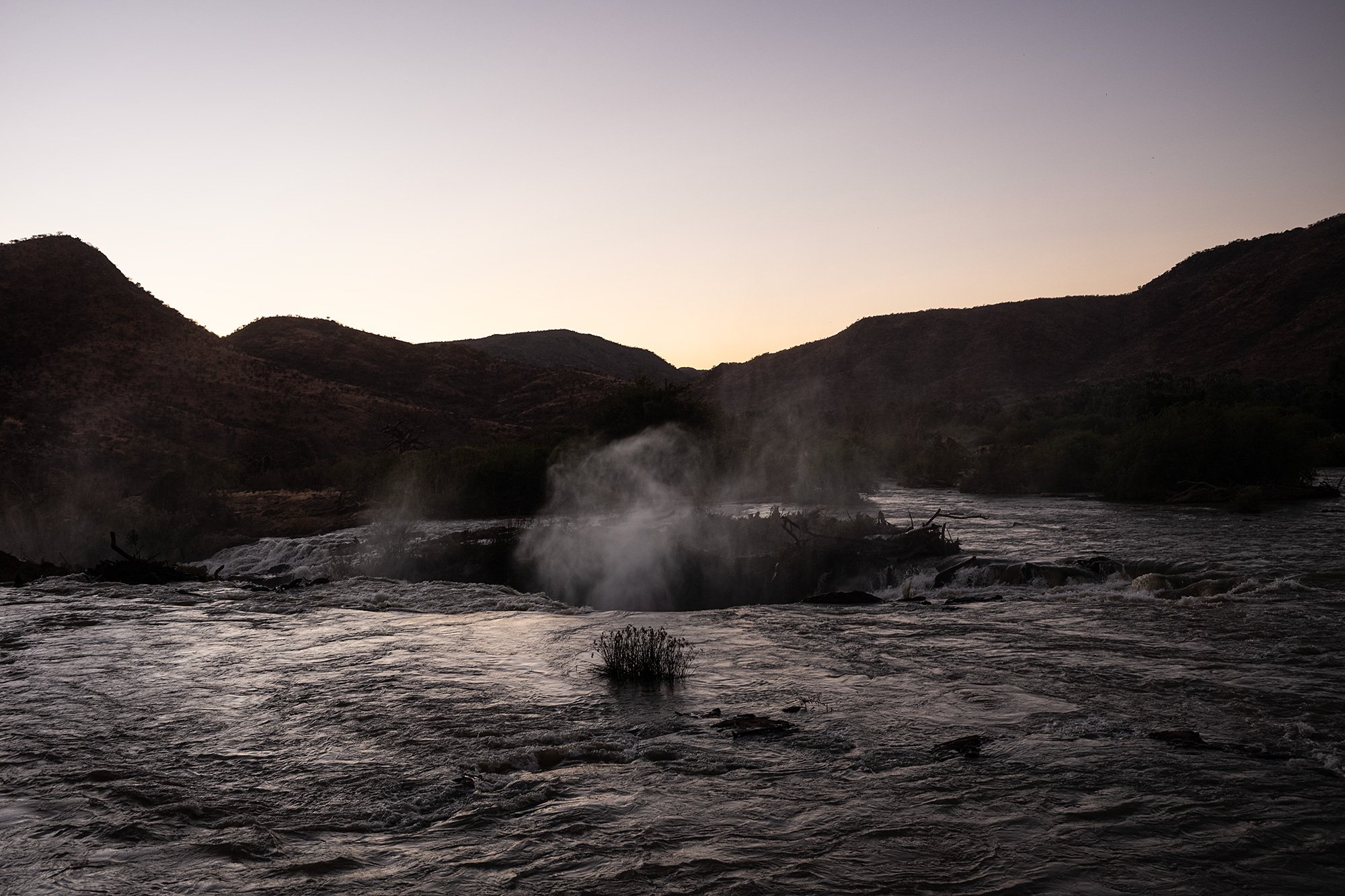
The lodge is sparsely populated and I’m the only one at dinner when I sit for my meal. The staff is kind and welcoming and the food is tasty. I watch bats flit through the darkening sky, silhouetted against dusky reds and purples.
I chat with a guide about activities. He suggests a morning walk along the banks of the river for views of the falls and tells me he offers rafting trips. The price for rafting is a bit high for one person, and I tell him I’ll go for the morning walk, but will raft only if there are others who are looking to go. He tells me he’ll ask at the Wilderness lodge and tell me in the morning.
After dinner I’m exhausted. I walk back to my cottage and climb the stairs to the room. I debate leaving my window open, but think the better of it in case there are animals looking to wreak havoc. I fall asleep to the thunder of the falls, a constant roar in my ears that blend in with the thrum of tires on a gravel road as the memories of the day unspool in my minds eye. 🇳🇦
5 June 2024
